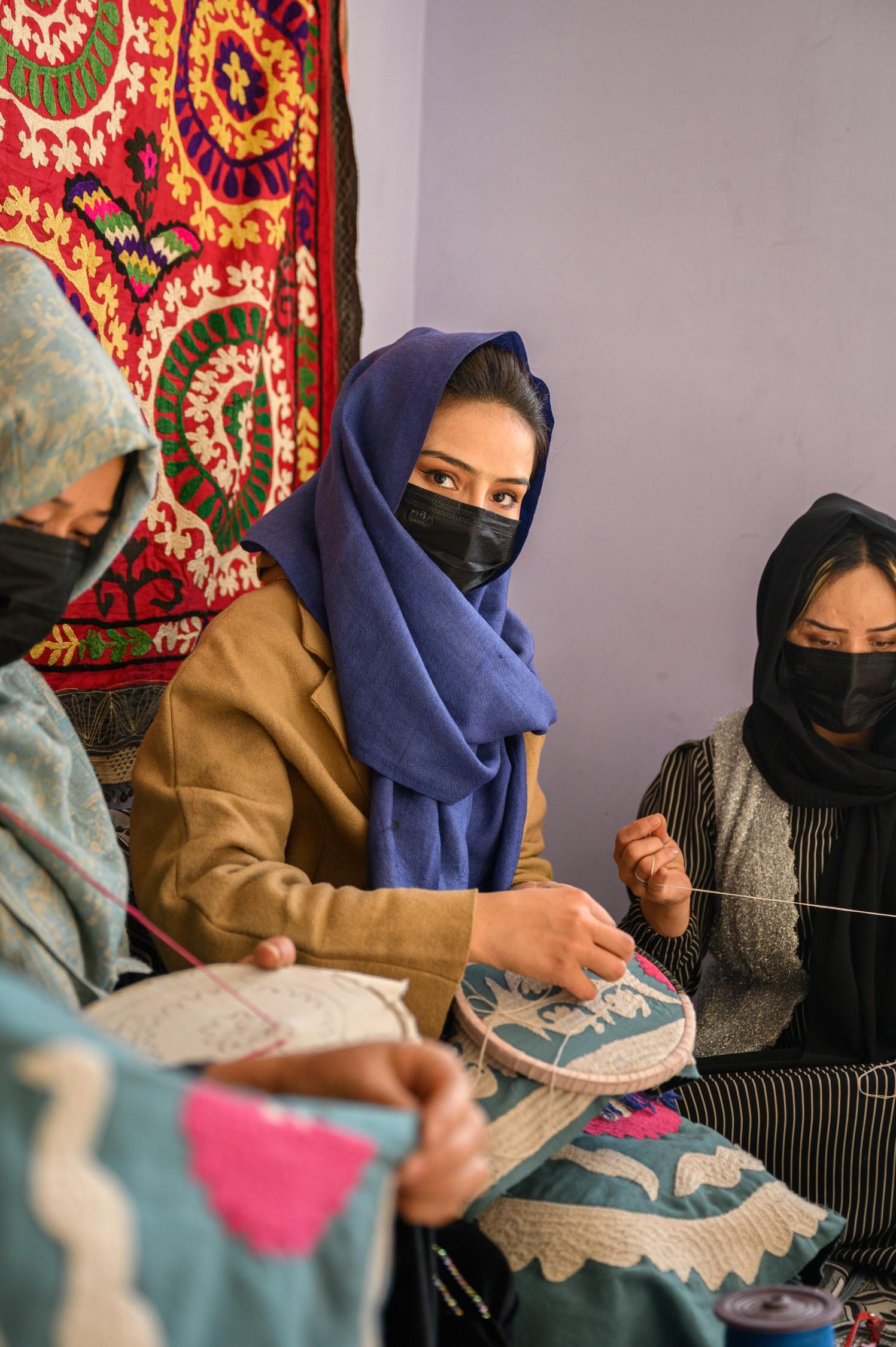
International alliance for the protection of heritage (ALIPH) presents
« Portraits of Women –Beyond the Stones »


International alliance for the protection of heritage (ALIPH) presents
« Portraits of Women –Beyond the Stones »
This poignant and inspiring collection highlights the invaluable contributions from women working daily to safeguard cultural heritage threatened or damaged by conflicts, the impact of climate change and natural disasters. These women—architects, archaeologists, site guardians, museum curators, artisans, art historians, as well as conservators—are on the frontlines to preserve monuments, sites, museums, religious buildings, collections, but also our intangible heritage.
The International alliance for the protection of heritage (ALIPH) honors these exceptional women. Their expertise, dedication, and courage are a testament to the resilience of humanity and the enduring power of culture.
This exhibition is a tribute to the guardians of our shared memory —these women who, against all odds, watch over the preservation of our cultural heritage and ensure its transmission to future generations.
Bariza Khiari, Chair of the Foundation Board, ALIPH
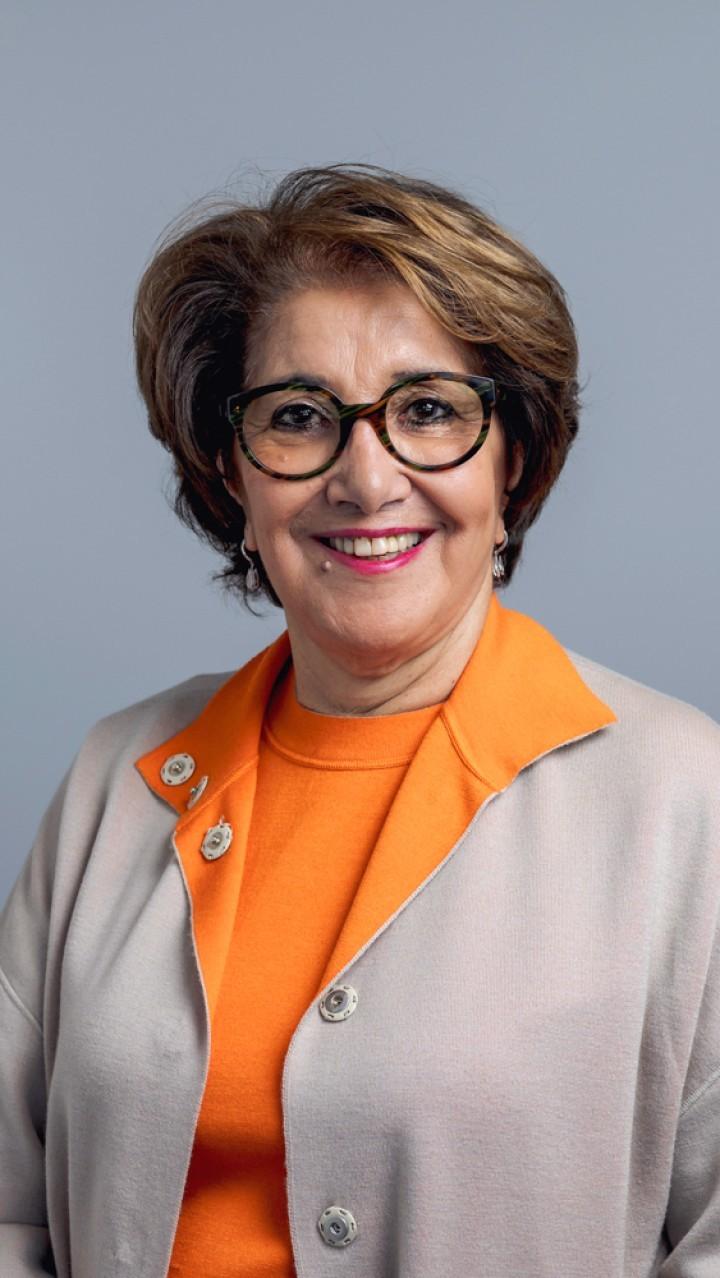
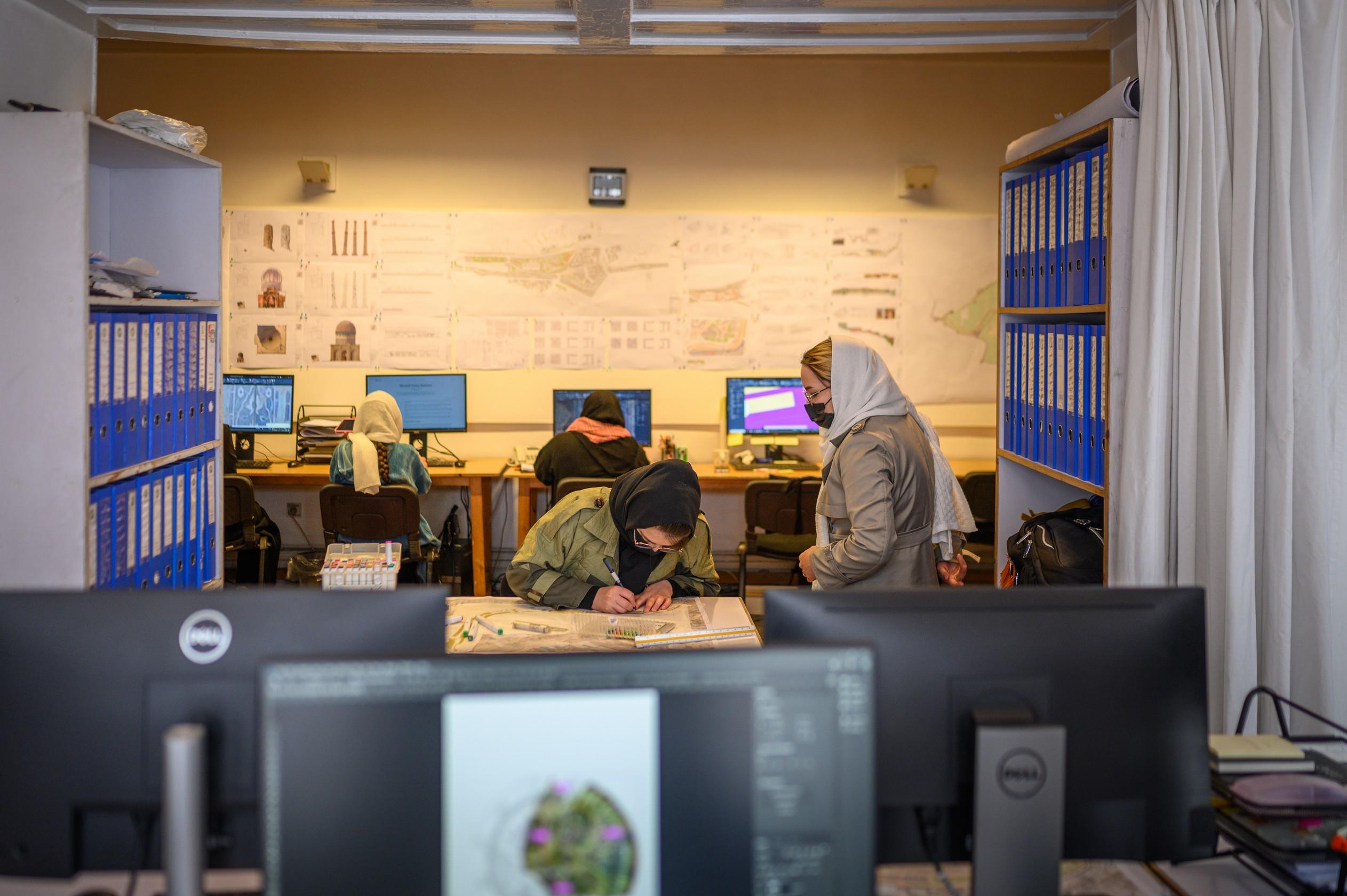
Afghanistan holds a rich diversity of archaeological and built heritage spanning millennia and encompassing ancient civilizations such as Buddhist, Islamic, and Mongol legacies. Decades of conflict, combined with volatile security situations and the growing impact of climate change, have endangeredthesesites.
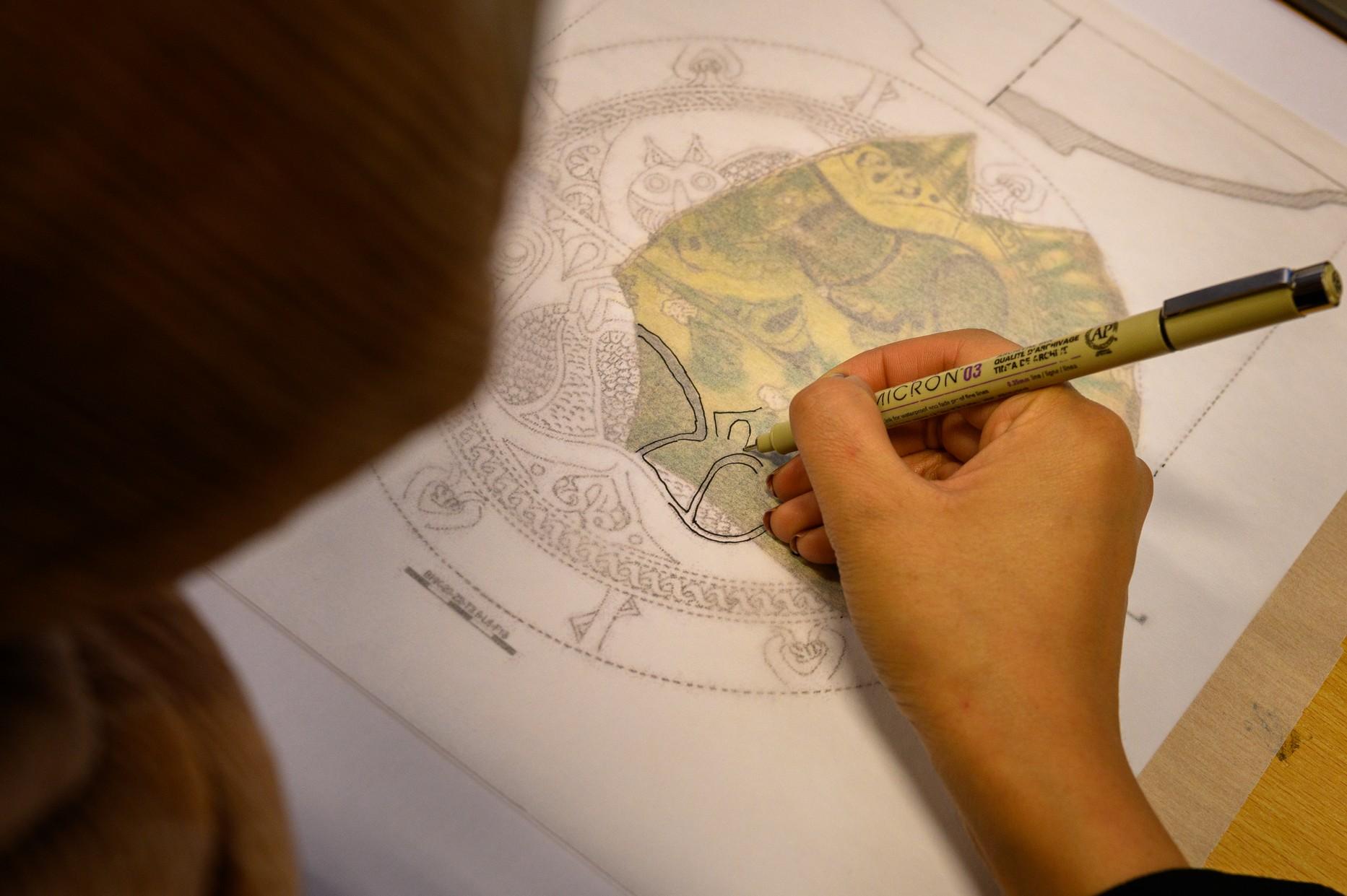
Since 2019, ALIPH has been supporting projects in Afghanistan, working hand in hand with local partners and international organizations to protect and rehabilitate sites, including religious, archaeological, and monumental.
Todate,ALIPHhassupported23 projectsfora commitmentofnearlyUSD12million.The womenphotographedhereareAfghanarchitects andarchaeologistscommittedtosafeguarding theircountry’sheritage.
Afghanistan, December 2024 © Elise Blanchard
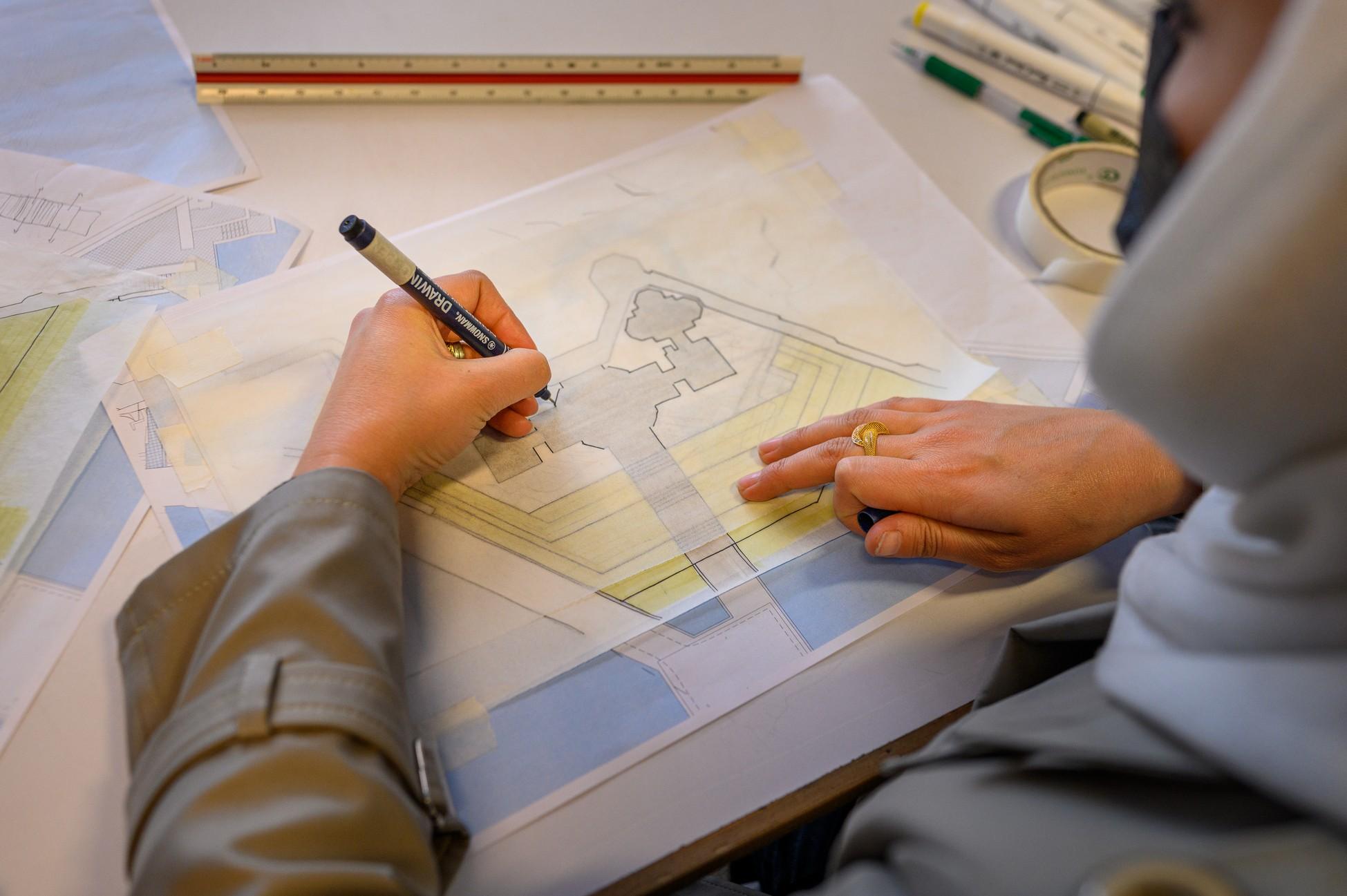
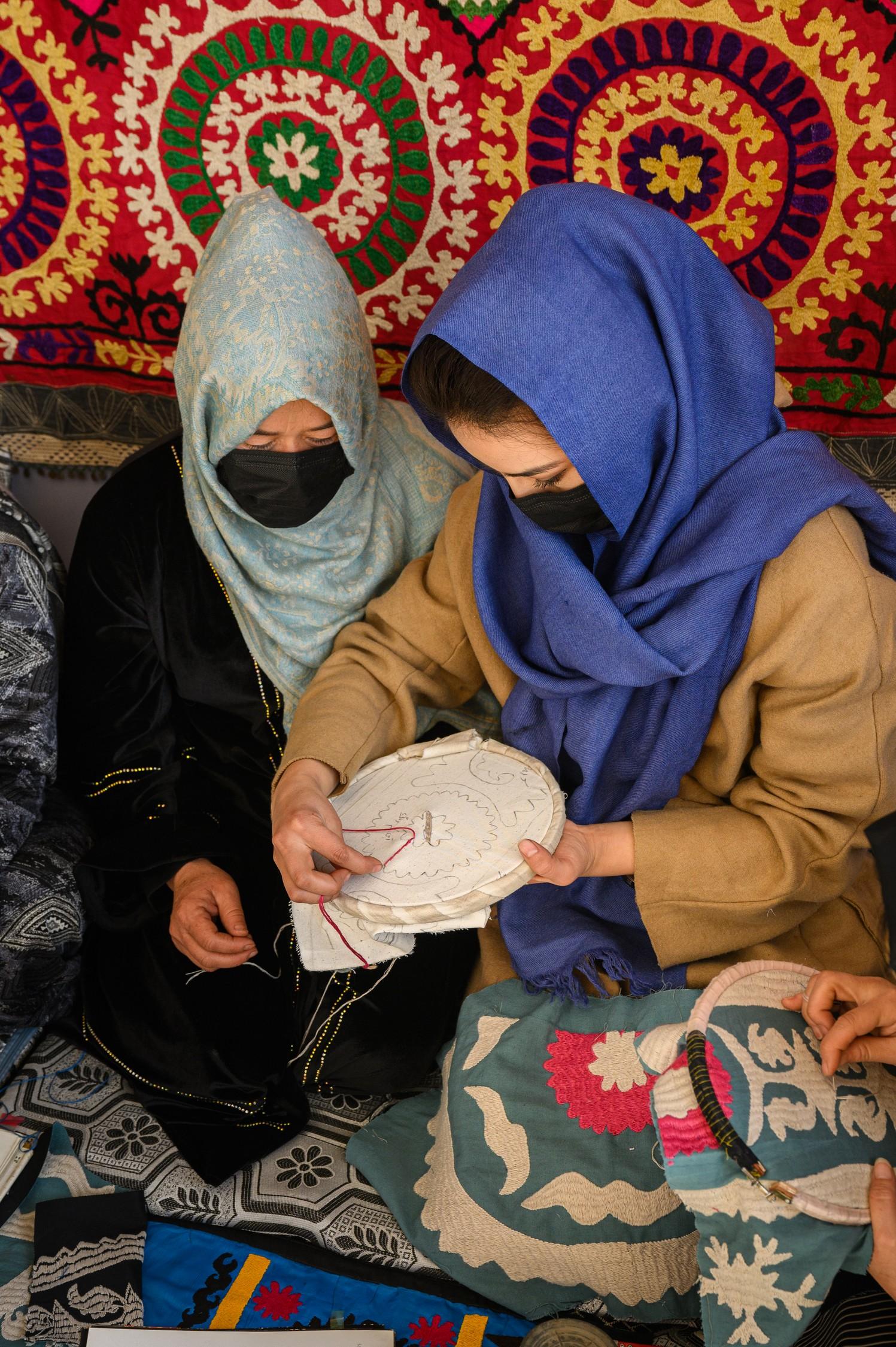
The women pictured here are working on Suzani (in Persian, Suzan means needle), a traditional type of embroidered and decorative textile native to Afghanistan, Tajikistan, Uzbekistan, and other Central Asian countries. These women are trained in preserving and improving the art of thread, and their work allows them to come together under one roof to learn new skills, build a sense of community, and reconnect socially and emotionally. ALIPH has supported projects in this domaintocontributetomaintainingthetradition.
Pictured here and on previous slide are artisans from Zarif Design. Founded in 2005, this social enterprise based in Kabul empowers artisans with dignity and economic sustainability by reviving the ancient traditions and skills of weaving, embroidery, and tailoring. Zarif employs 30 artisans in its Kabul workshop, in addition to 60 women who work as home-based embroiderers, and weavers in Kabul, Mazar-i-Sharif, and Herat.
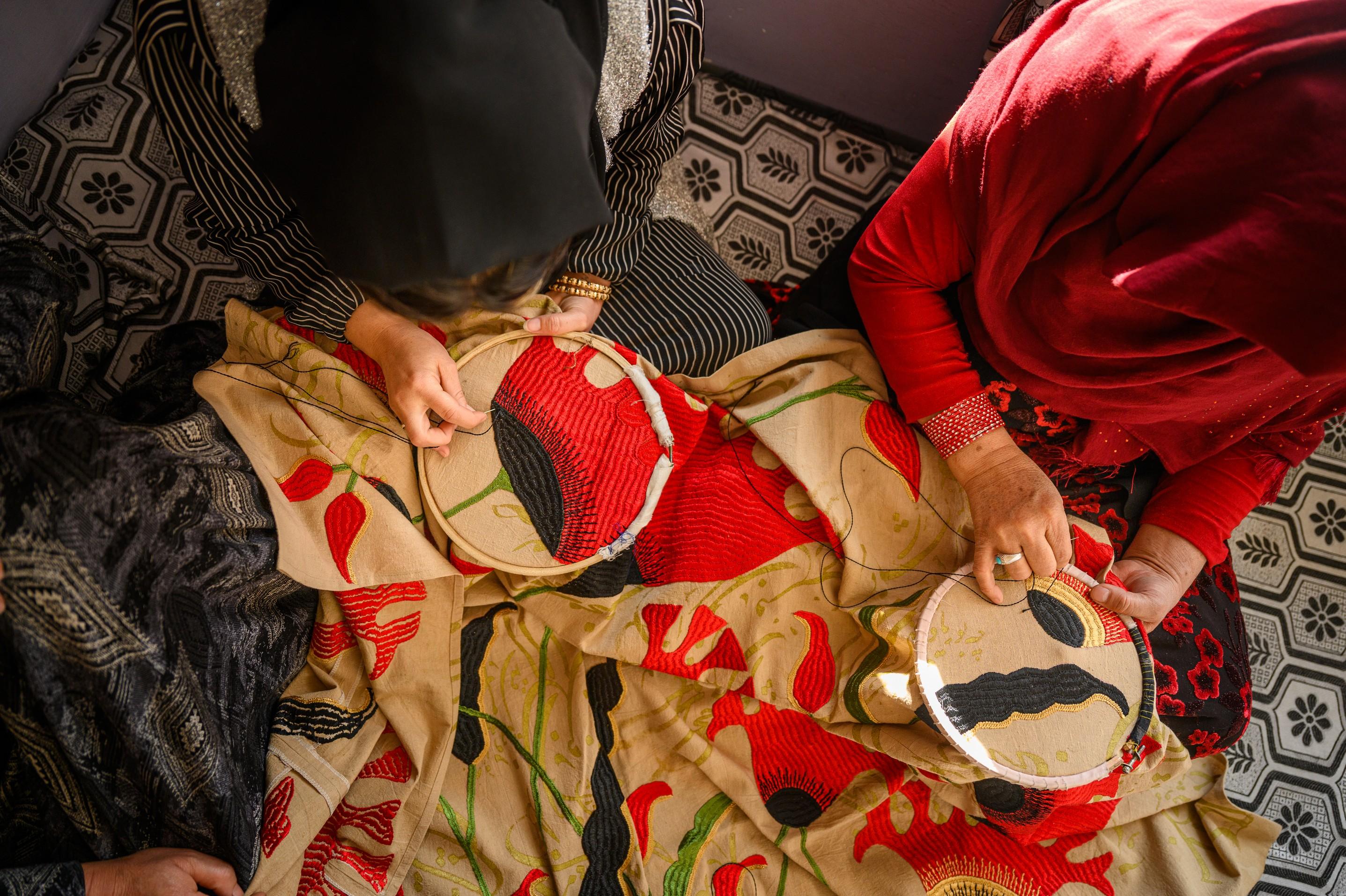
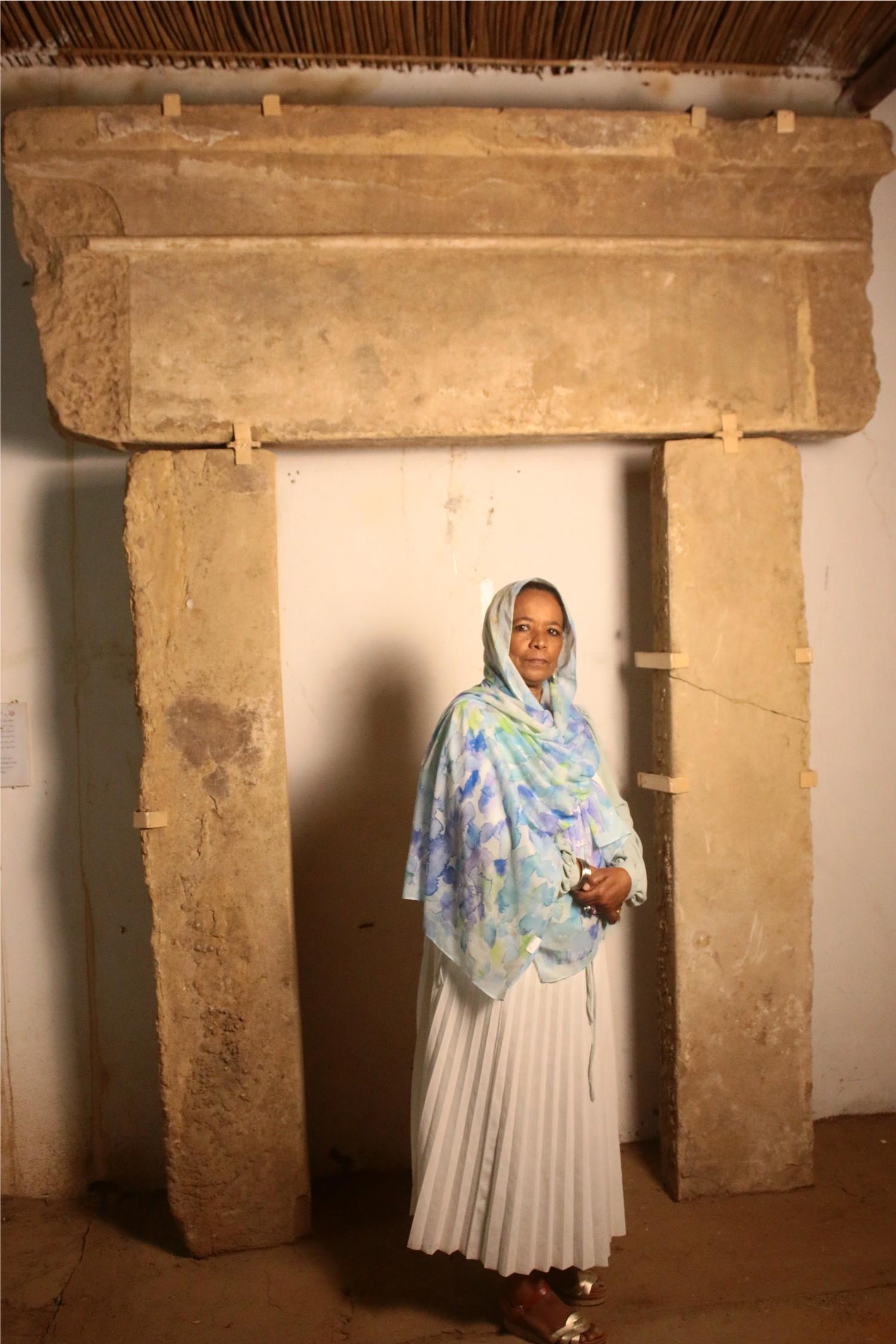
Deputy Director of the Museum Sector, National Corporation for Antiquities and Museums, Senior Curator, NationalMuseumofKhartoum
Shadia Abdrabo Abdelwhab is a distinguished archaeologist and cultural heritage advocate. With a doctoral degree in archaeology from the University of Khartoum, she plays an important role in preserving Sudan’s rich history. As Senior Curator at the National Museum of Khartoum, Shadia Abdrabo Abdelwhab oversees the museum’s collections, exhibitions, and storage. She also trains emerging curators and scholars, conducts archaeological research, and frequently participates in fieldwork.
An internationally renowned author, Shadia Abdrabo Abdelwhab’s efforts are crucial in safeguarding Sudan's cultural heritage, which faces threats amidst ongoing conflict. Her work ensures the protection and preservation of artifacts that testify to some of the earliest periods in human history.
Currently, through an ALIPHsupported project, Shadia Abdrabo Abdelwhab is developing an online platform to document and preserve Sudan’s archaeological archives and collections at the Institut national d'histoire de l'art (INHA) in Paris.
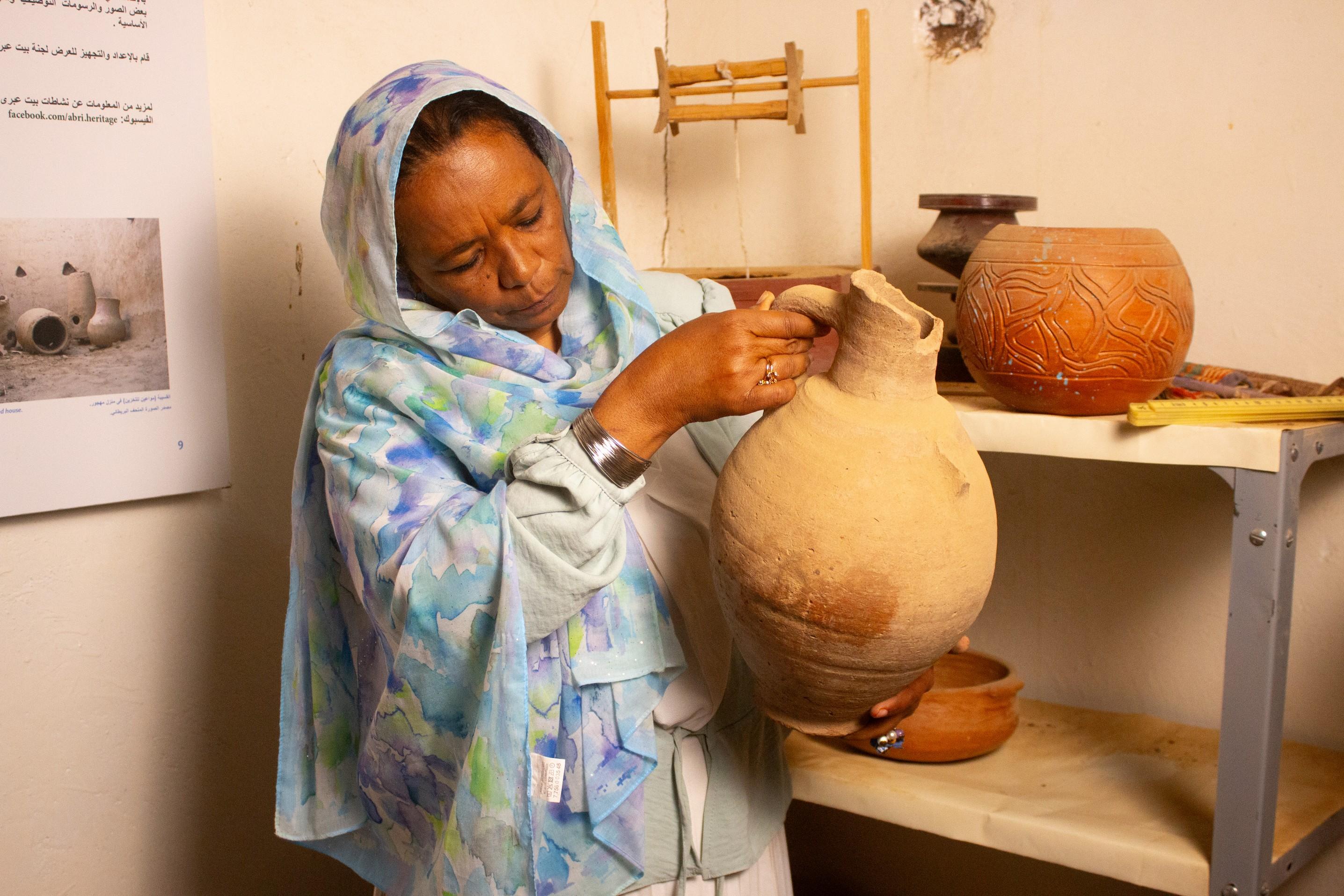
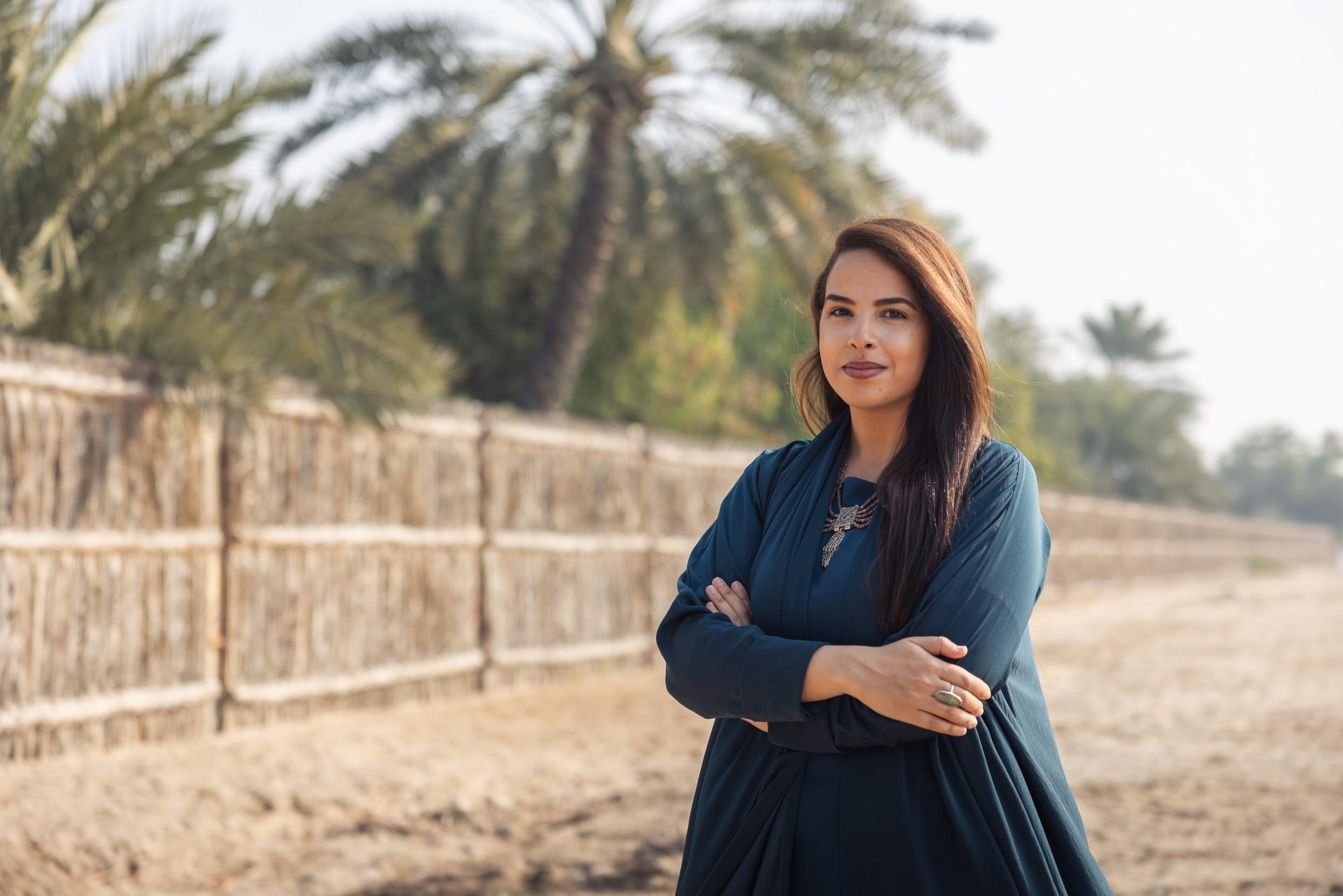
Selma Kassem is a consultant for cultural and natural world heritage, a CMAS Scientific Diver and a Divemaster with a focus on the marine environment. She holds a Master’s in World Heritage Studies from Brandenburgische Technische Universität Cottbus-Senftenberg (Germany). Her dual German-Yemeni heritage hasallowedhertobuildinternationalexpertisein cultural and natural heritage. She has worked with leading institutions, including the International Centre for the Study of the Preservation and Restoration of Cultural Property (ICCROM), the International Council on Monuments and Sites (ICOMOS), the International Union for Conservation of Nature (IUCN), the UNESCO Category 2 Center – the Arab Regional Centre for World Heritage (ARCWH), as well as ALIPH as an external consultant.
While Programme Specialist for Culture and Nature at ARC-WH, Selma Kassem led two projects supported by ALIPH to rehabilitate historical buildings in the Old Walled City of Shibam, Yemen, inscribed on the UNESCO List of World Heritage Sites in 1982. She oversaw the on-site work to restore examples of earthen architecture of this unique city, known as the “Manhattan of the Desert” for its fortified walls and tower-like constructions rising from its cliffs. Throughout the two projects, in a close partnership with the local community, 60 stores in the central market and 18 historical buildings were restored using traditional techniques. Young artisans were also trained and are now equipped to carry on this important restoration work, ensuring that cultural treasures are preserved, even in one of the world’s mostchallengingcontexts.
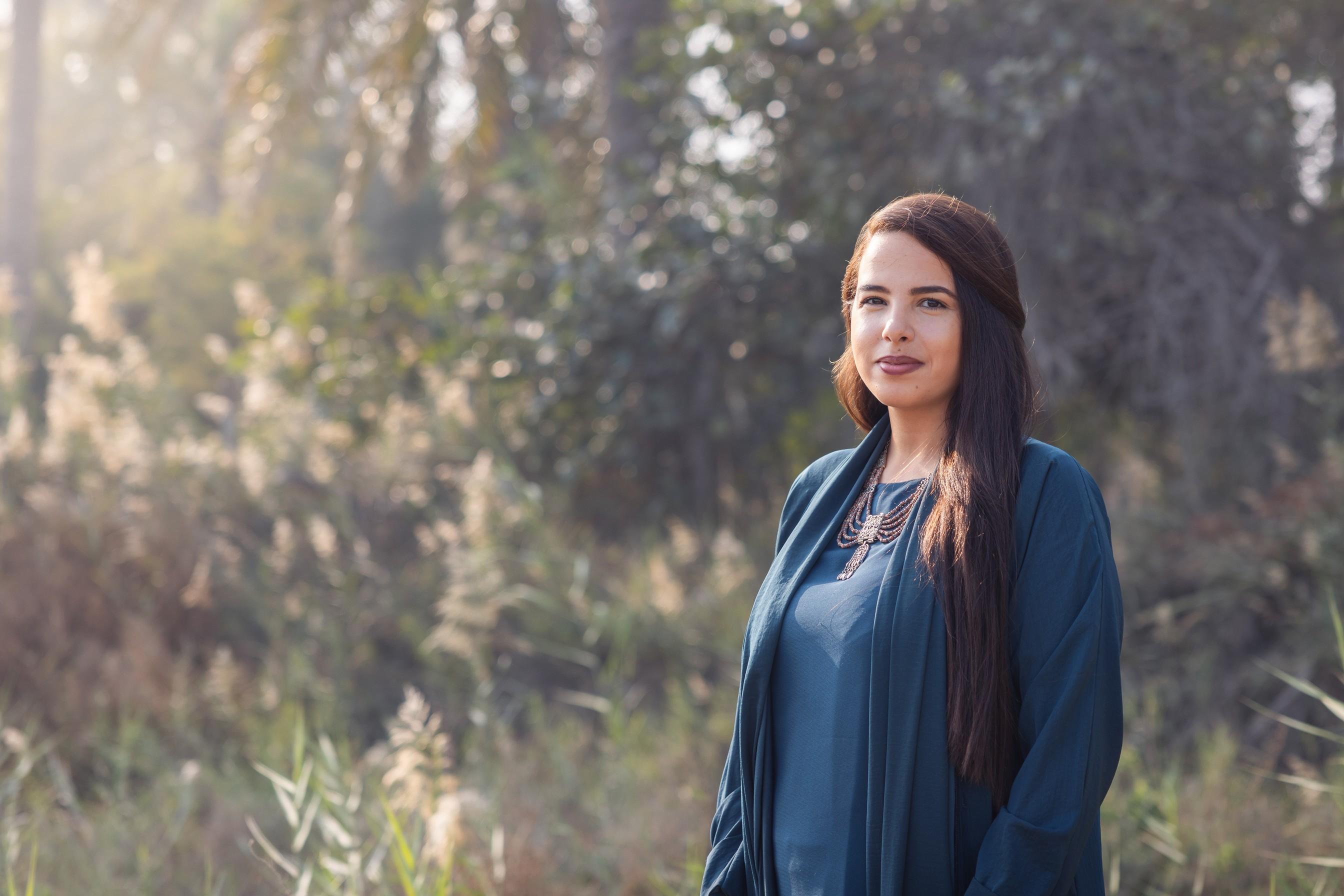
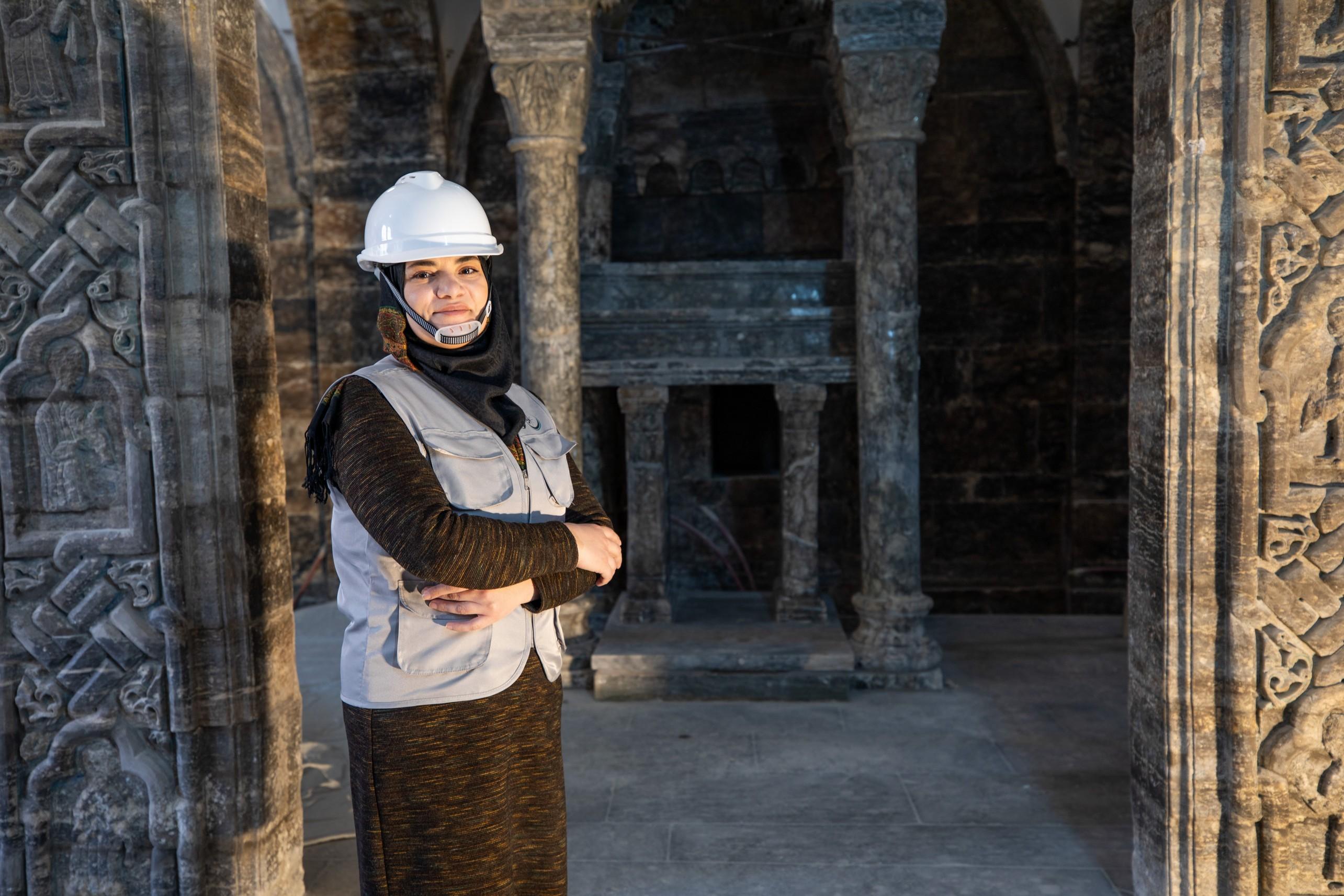
Rana Salih, Iraq Archaeologist, State Board of Antiquities and Heritage (SBAH)
Rana Bashar Salih, an archaeologist with the Iraqi State Board of Antiquities and Heritage (SBAH), graduated from the Faculty of Archaeology at the University of Mosul. Since 2013, she has dedicated her career to documenting and restoring heritage sites in thehistoriccityofMosul.
Rana Bashar Salih has been leading the restoration work at the Mar Toma Syriac Orthodox Church, a site of profound historical and cultural significance believed to date back to the 7th century. This church, traditionally thought to occupy the site of Apostle Thomas’s residence in Mosul, suffered severe damage during Daesh’s occupationofthecity.
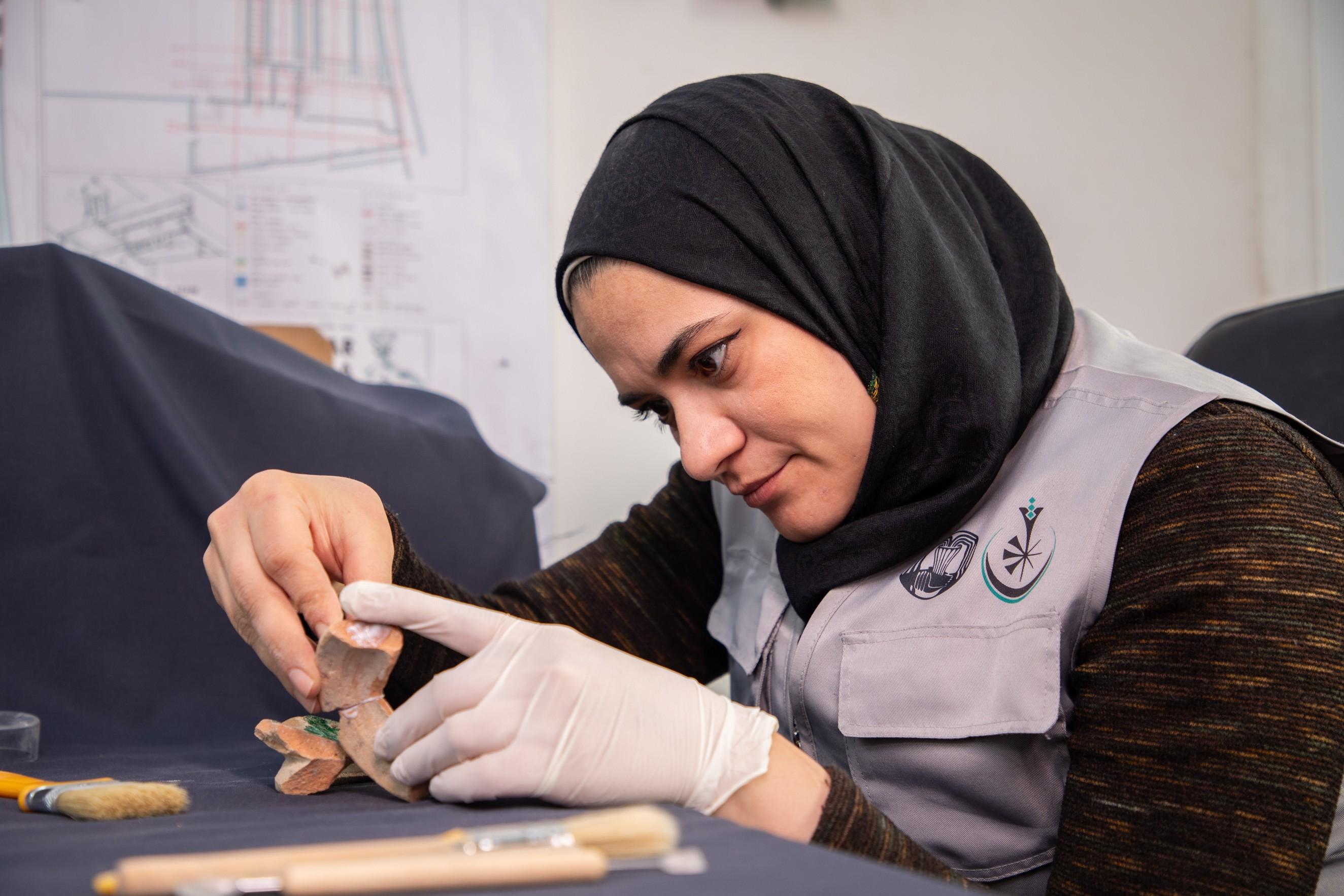
This project, implemented by Oeuvre d’Orient, is part of ALIPH’s “Mosul Mosaic Program” to restore two churches, two mosques, the Cultural Museum and monuments in the Old City. These efforts contribute to the revitalization of Mosul's cultural and religious diversity and the initiative of UNESCO and the Iraqi authorities to “Revive the Spirit of Mosul”.
For Rana, preserving heritage is about keeping history alive for future generations. Her greatest joy comes from seeing visitors return to restored and reopened sites, a testament to the resilience of the people of Mosul.

Curator of the Archaeological Museum, American University of Beirut
Nadine Panayot holds a Doctorate in Classical Mediterranean Archaeology from the University of Paris, PantheonSorbonne. Before joining the American University of Beirut, she was Director of the Archaeology and Museology Department, University of Balamand, where she founded and chaired the Museum’s Studies and Cultural Heritage Management Masters Programme. She also co-founded and carried out the conservation of the university’s ethnographic museum.
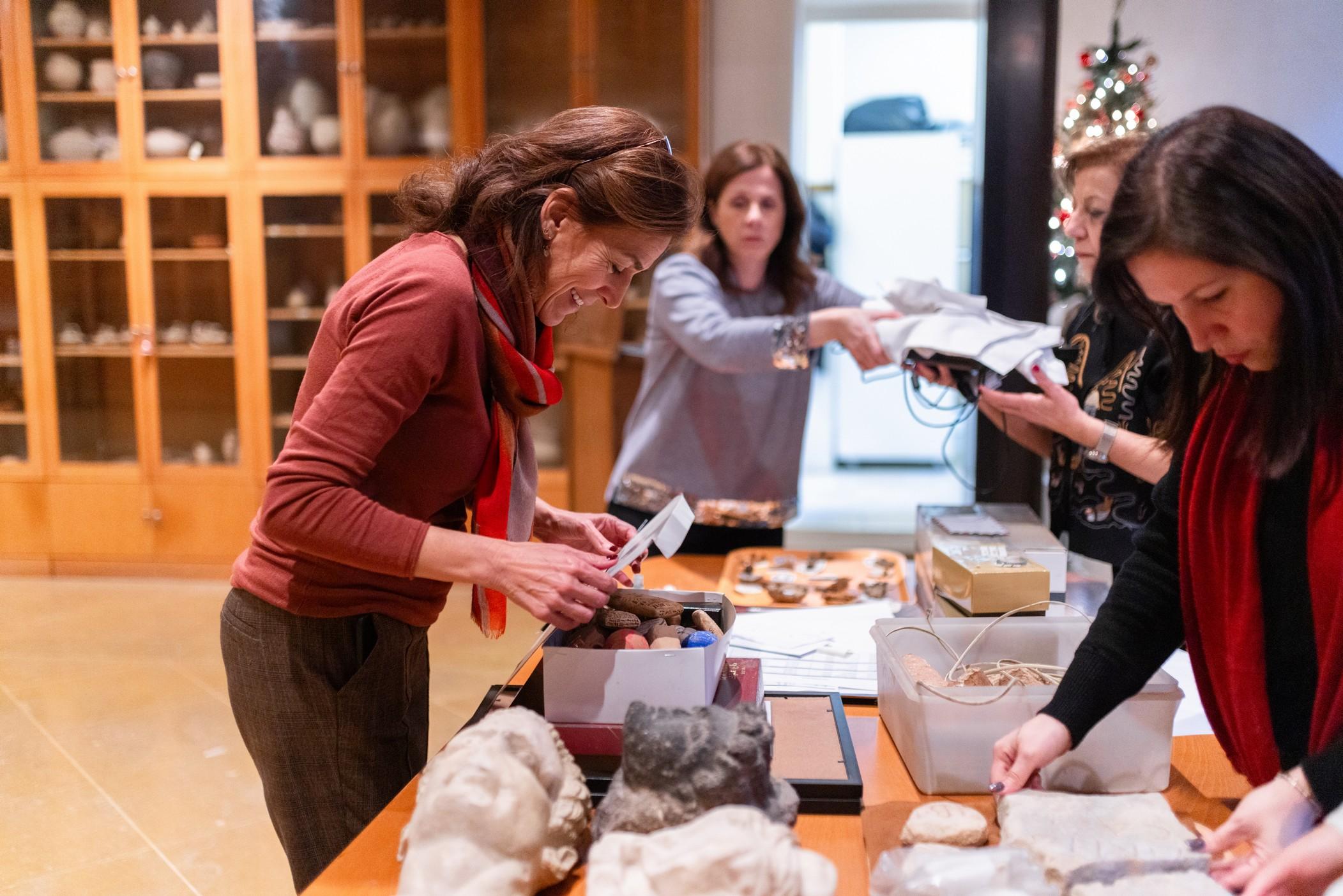
Under her leadership, the collections of the Archaeological Museum overcame the horrifying effects of the explosion on 4 August 2020. Thanks to the support of ALIPH, the French National Institute for Cultural Heritage, and the British Museum, the priceless ancient glass collection that had been shattered into thousands of pieces by the explosion hasbeenrestored.
In September 2024, faced with the widening of the conflict in the Middle East, ALIPH supported Nadine Panayot and her teamduringtheconstructionofabunkertostoreaselectionof artifacts. This allowed for the creation of a mini museum showcasing the most precious objects, ensuring their preservationandtheirpresentationinsafeconditions.
InOctober2024,shejoinedtheALIPHScientificCommittee.
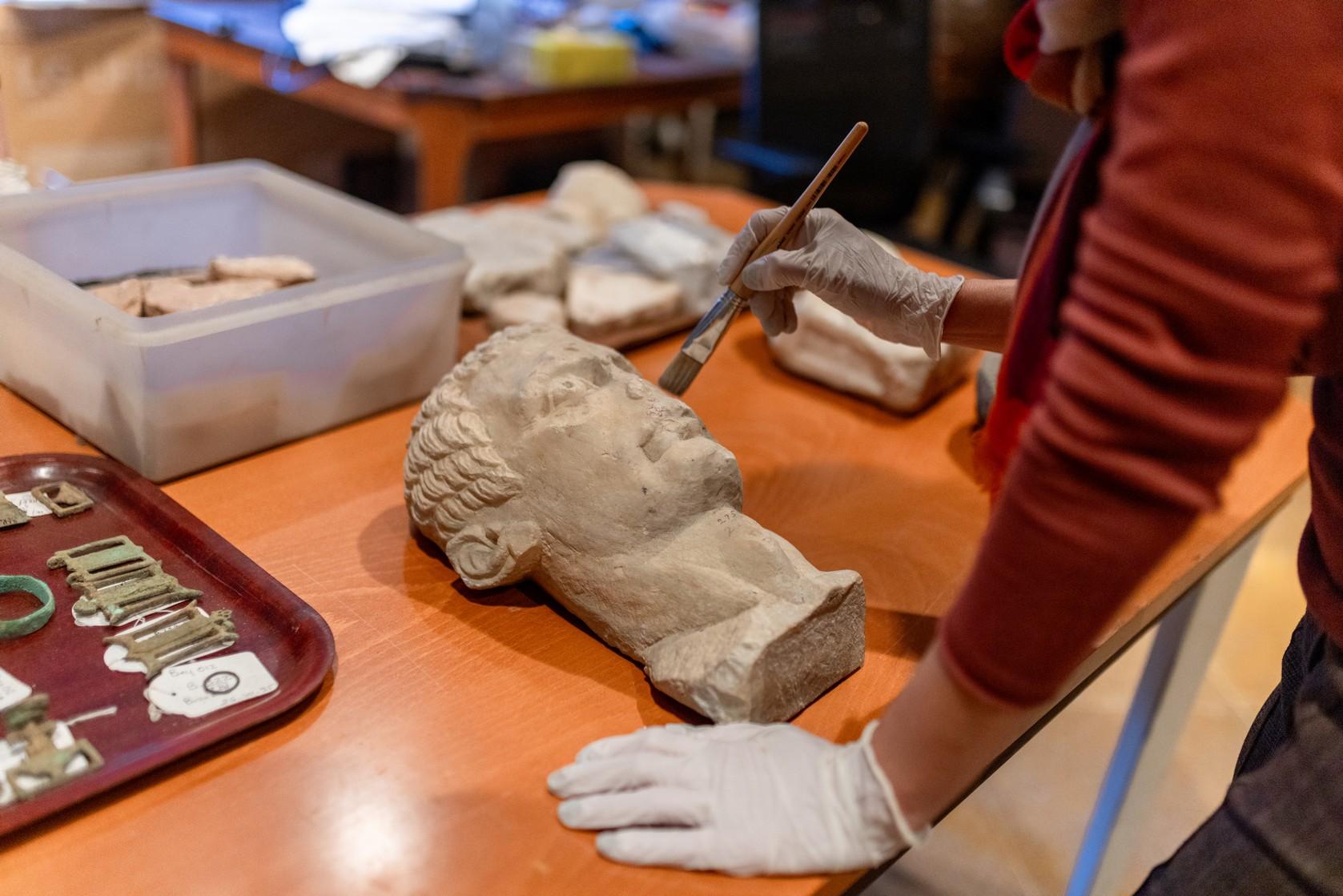
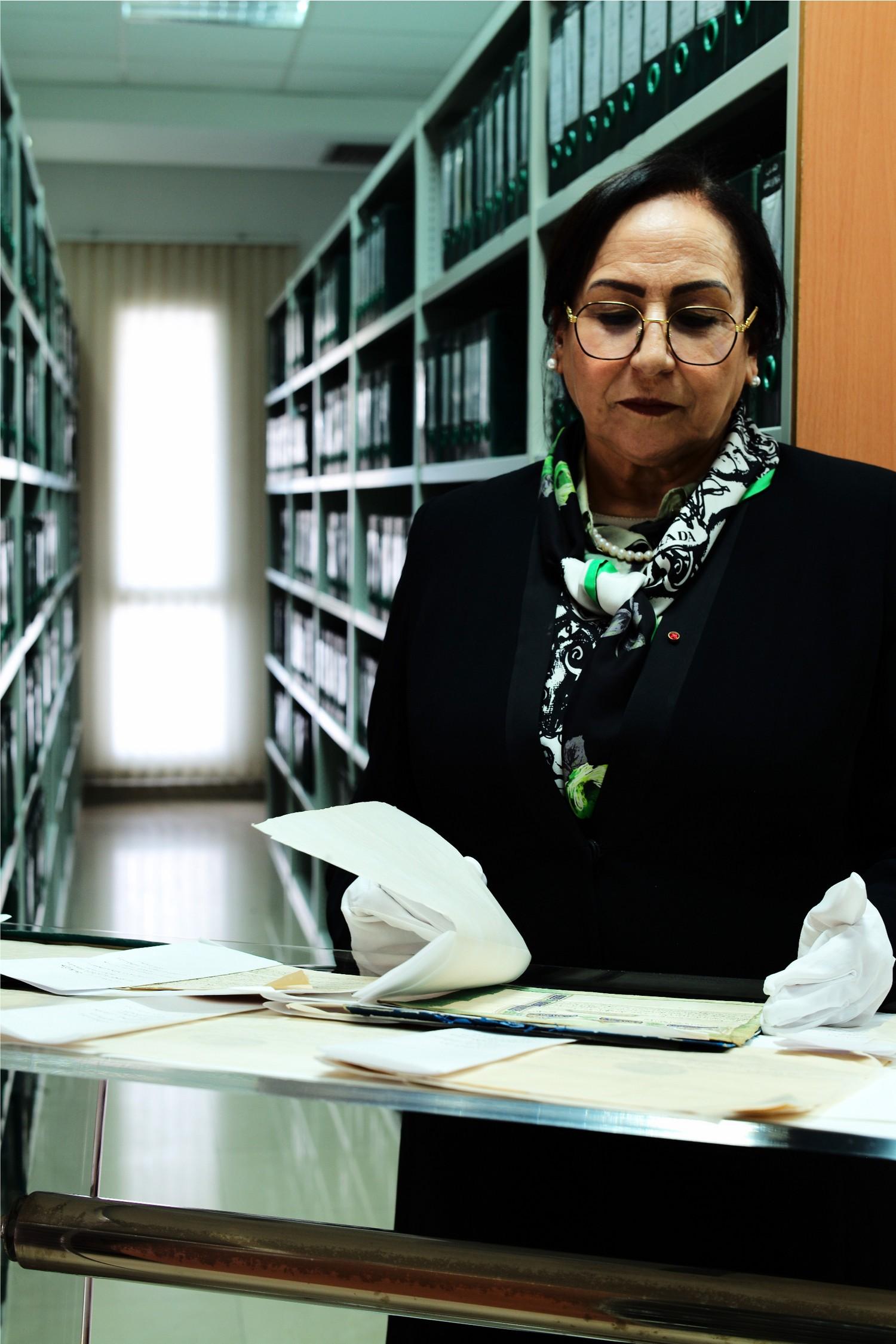
Director of the Royal Archives of Morocco and member of the ALIPHScientific Committee
Bahija Simou has dedicated her life to safeguarding Morocco's cultural heritage. Born in Ait Attab, Morocco, she is today one of the country's leading historians and archivists.
Author of numerous works in Arabic and French, Bahija Simou has organized several national and international exhibitions. She has been the Director of the Royal Archives of Morocco since 2008, where she has transformed archiving and conservation practices. Her scholarly work bridges the gap between past and present, via numerous publications, research, and international collaborations that highlight her country's military and cultural history.
She has also created a tourist and cultural complex at Ouzoud in the Middle Atlas that encompasses the Dar Al Maârifa Ethnographic Museum and a library. Furthermore, every year Bahija Simou organizes an international film festival dedicated to mountain cinema.
Her efforts to make history accessible to all have earned her numerous distinctions, including the Wissam Al Arch de l'Ordre d’Officier of the Kingdom of Morocco, the Chevalier de l'Ordre des Arts et des Lettres de la République française, and Officier dans l'Ordre National de la Légion d'Honneur de la République Française, as well as other foreign distinctions.
Bahija Simou has been a member of the ALIPH Scientific Committee since the Foundation was created in 2017.
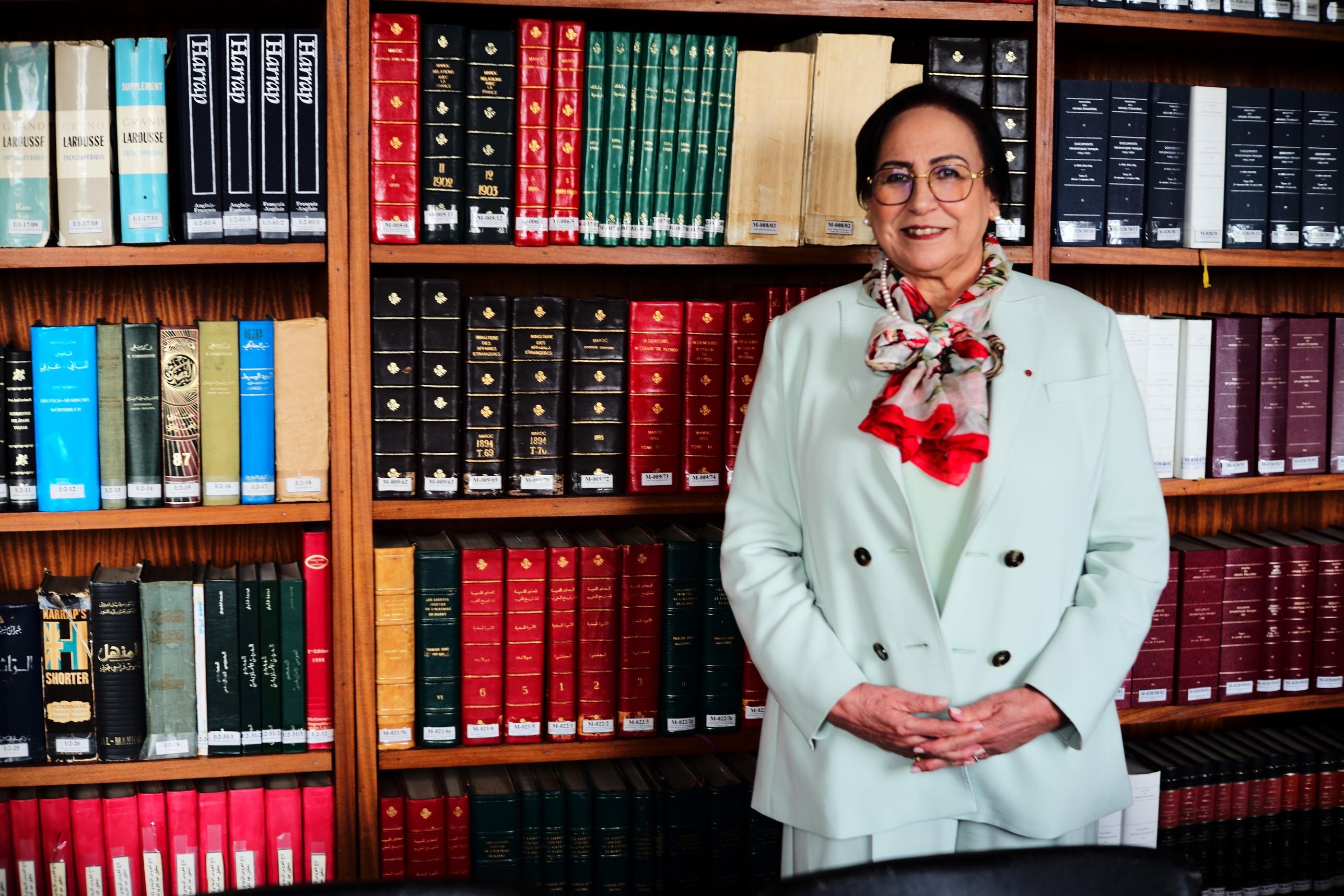
Architect, Project Manager, IECD(European Institutefor Cooperation andDevelopment)
Sandrine Melki earned her master’s degree in architecture from the Lebanese University and then a PhD in Urban Geography at the Sorbonne University. Based in Beirut, she worked first as an Architect and then as a Project Manager at the Institut Européen de Coopération et de Développement (IECD).
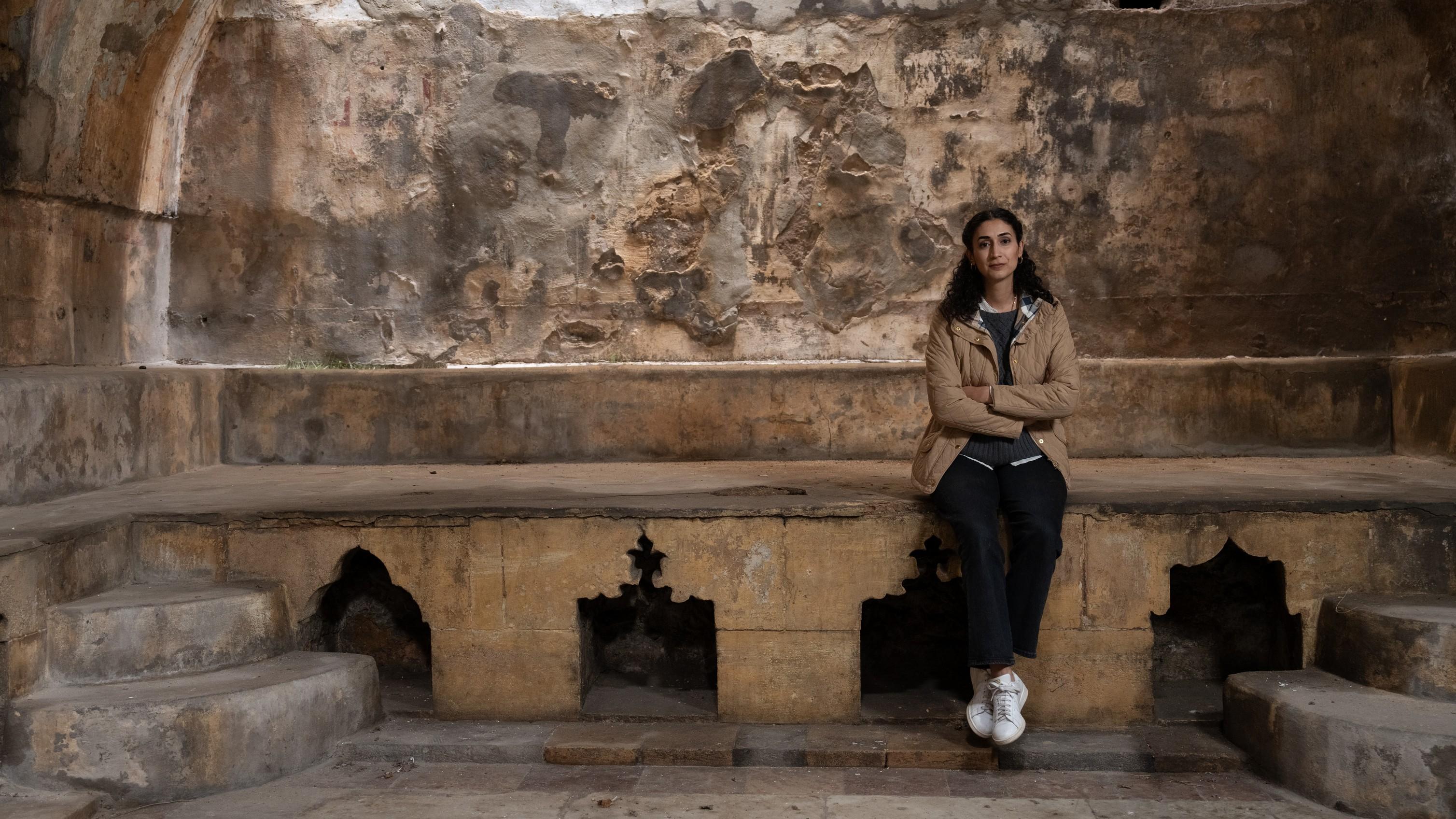

In this role, she managed two heritage rehabilitation projects funded by ALIPH. The first was the restoration of the historical villa Al Makassed damaged in the Beirut blast of 4 August 2020. This late 19th-century villa is home to a library of 35,000 books—the largest collection of publications on Islam in Lebanon. The villa was successfully restored and has been open to the public since May 2024. The project also trained 74 youth—nearly 30% of whom were women—in heritage restoration skills and trades to help them integrate into the job market. Sandrine Melki is currently managing the rehabilitation of Hammam Al Nouri in Tripoli, Lebanon. For both projects, she oversees the on-thejob training, with the help of a multi-disciplinary team.
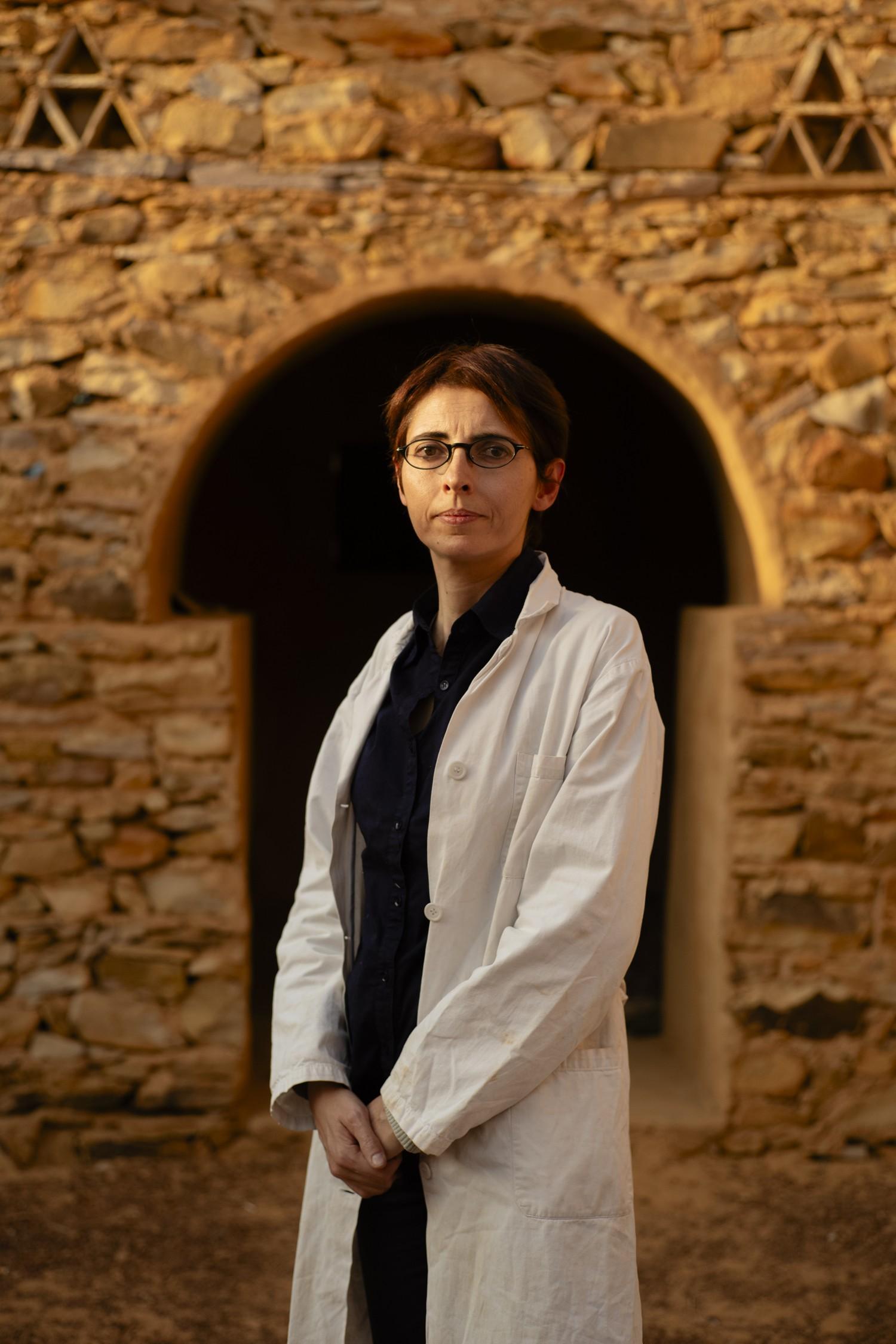
Maria Luisa Russo is an expert on the conservation, management, and promotion of archives and libraries. Her work focuses especially on cultural heritage located in crisis areas, particularly Mali and the Middle East. Fascinated by the magic of ancient manuscripts and the stories they tell, preserving them has become her lifelong passion. Based in Turin, she is one of the founders of AMALIA (an acronym of Archivi, Manoscritti e Libri Antichi), a non-profit association created to promote knowledge of documentary heritage and to contribute to its protection and appreciation.
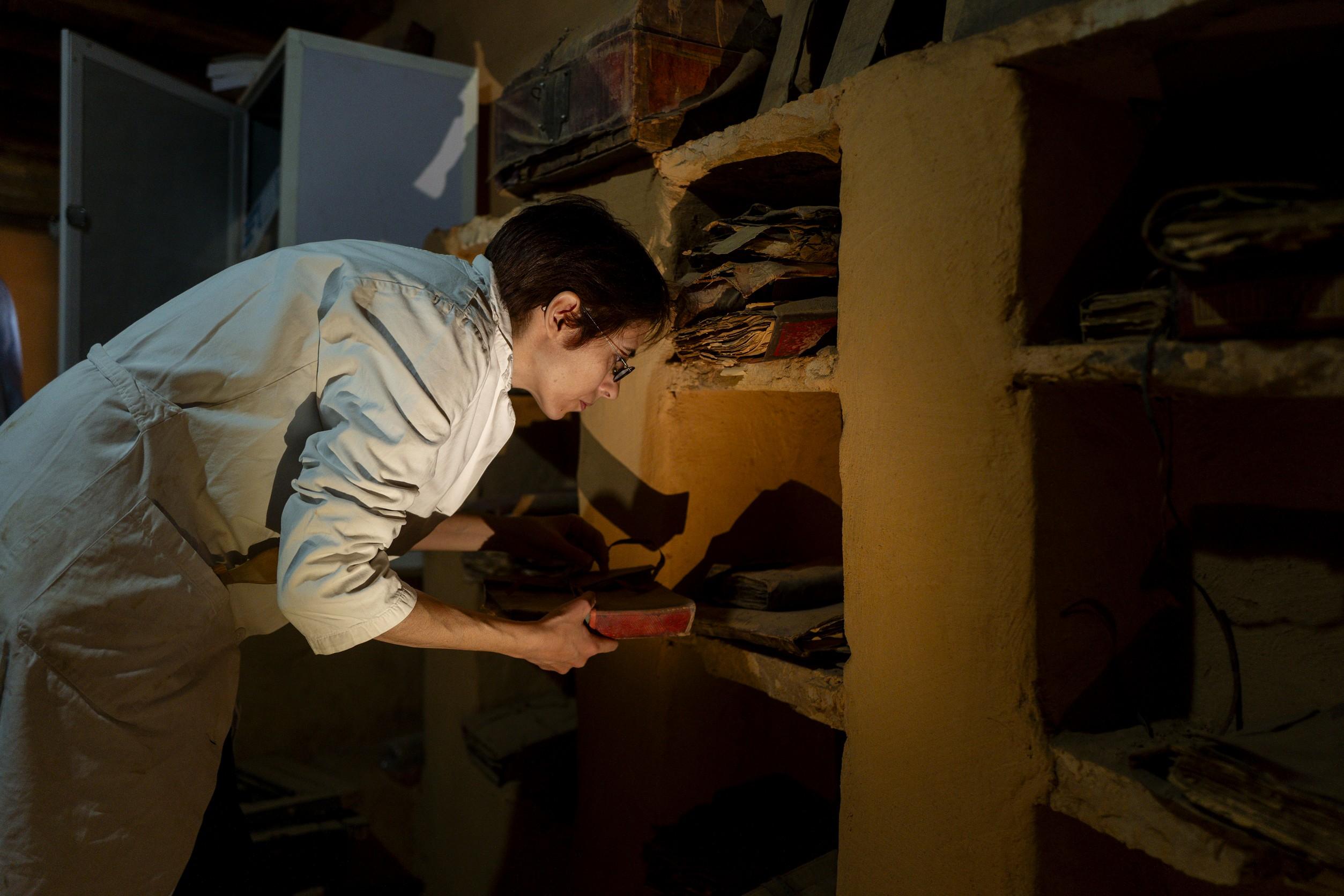
With ALIPH’s support, Maria Luisa Russo has completed projects in Timbuktu and Djenné (Mali), where she trained local library personnel and archivists on manuscript conservation practices, carried out emergency conservation works on damaged manuscripts, and upgraded storage conditions. She is currently conducting similar work in East Jerusalem and Mauritania, also funded by ALIPH. The photos presented here show her during a recent mission to Chinguetti, Mauritania, where manuscripts and archives are endangered due to harsh environmental conditions, exacerbated by climate change.
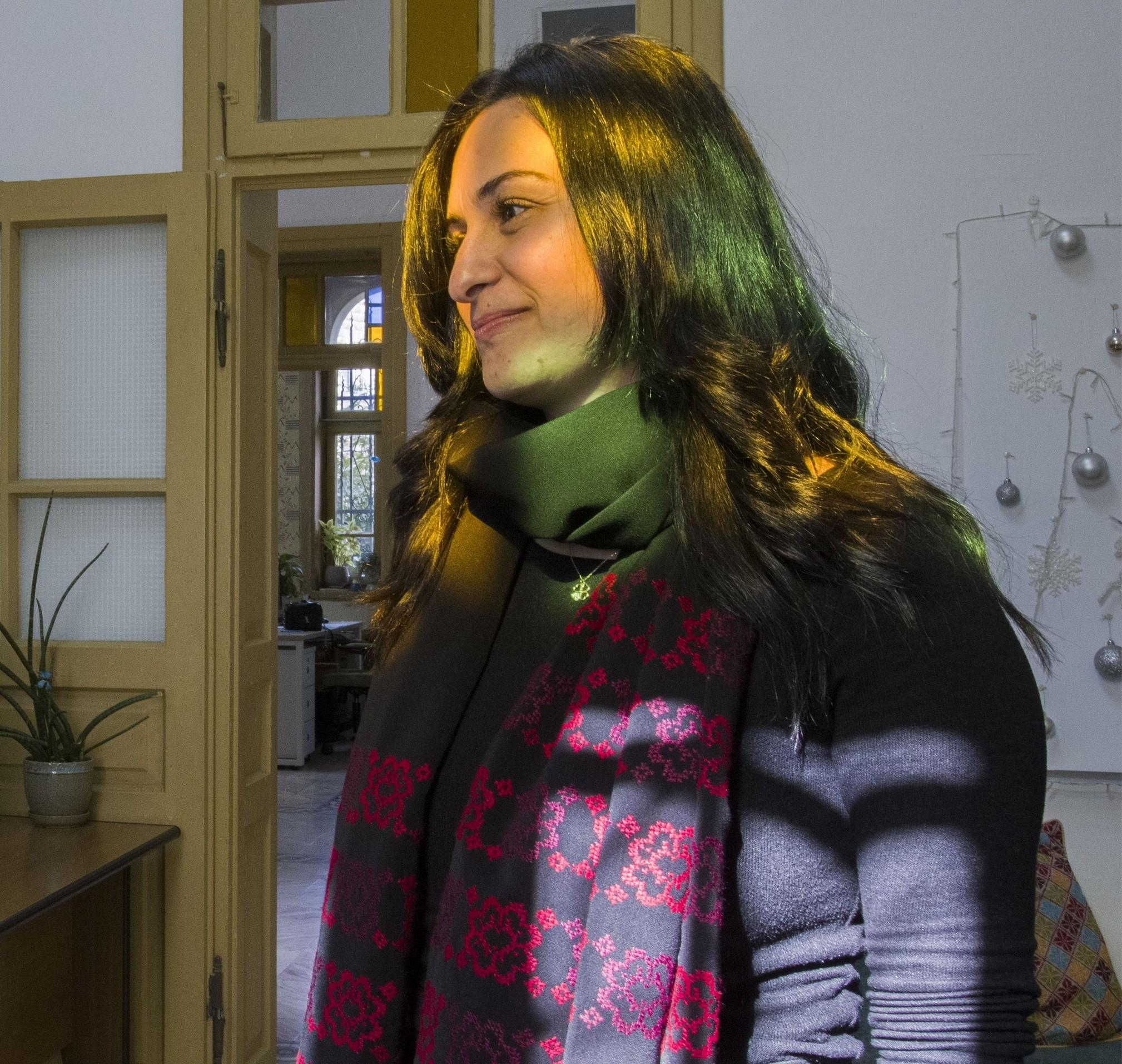
Ms. Shatha Safi, Palestine Director, RIWAQ(NGO)
Shatha Safi is an architect and joined RIWAQ in 2008. She is currently serving as Director of the organization. She received a B.Sc. in architectural engineering from Birzeit University and a Master’s in World Heritage and Cultural Projects for Development from the International Training Centre of the International Labour Organization (ITCILO), Turin, Italy. She has led and worked on various rehabilitation projects, including in the towns of Beit Iksa, Hajjah, Birzeit, and Qalandiya. She is especially interested in cultural landscape and community involvement.
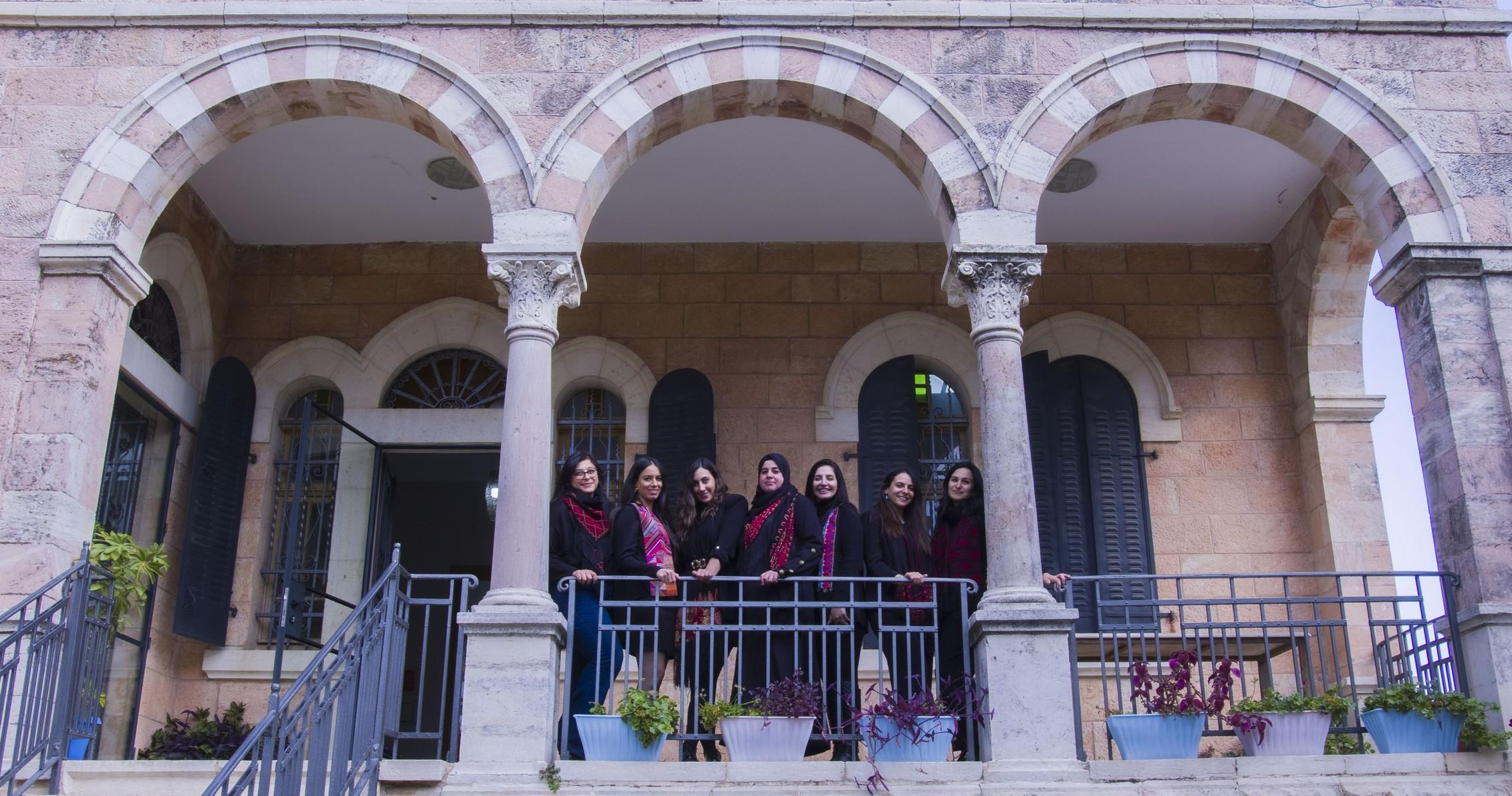
Under Shatha Safi’s guidance, RIWAQ has rehabilitated the Ali Salem mansion in Beitillu in the West Bank. This eight-room building from the late Ottoman period was restored, as well as the courtyard. Upon the completion of the restoration work, the premises were lent to the Beitillu Women’s Association to run programs to help local women achieve economic independence and confidence. As of January 2025, and given its location in the West Bank, the villa remains relatively untouched by the impacts of the war.
Shatha Safi also oversaw the restoration of the earlymid Ottoman era (16th-17th centuries) El-Wehidi House in Gaza. This project stabilized and restored the damaged building to host the Basma Society for Culture and Arts, a local NGO committed to building resilience in the Gaza Strip through culture and arts. As of January 2025, the exterior of the house has suffered damage from the ongoing war, but it remains structurally sound and is currently housing displaced people. Both projects were funded by ALIPH.
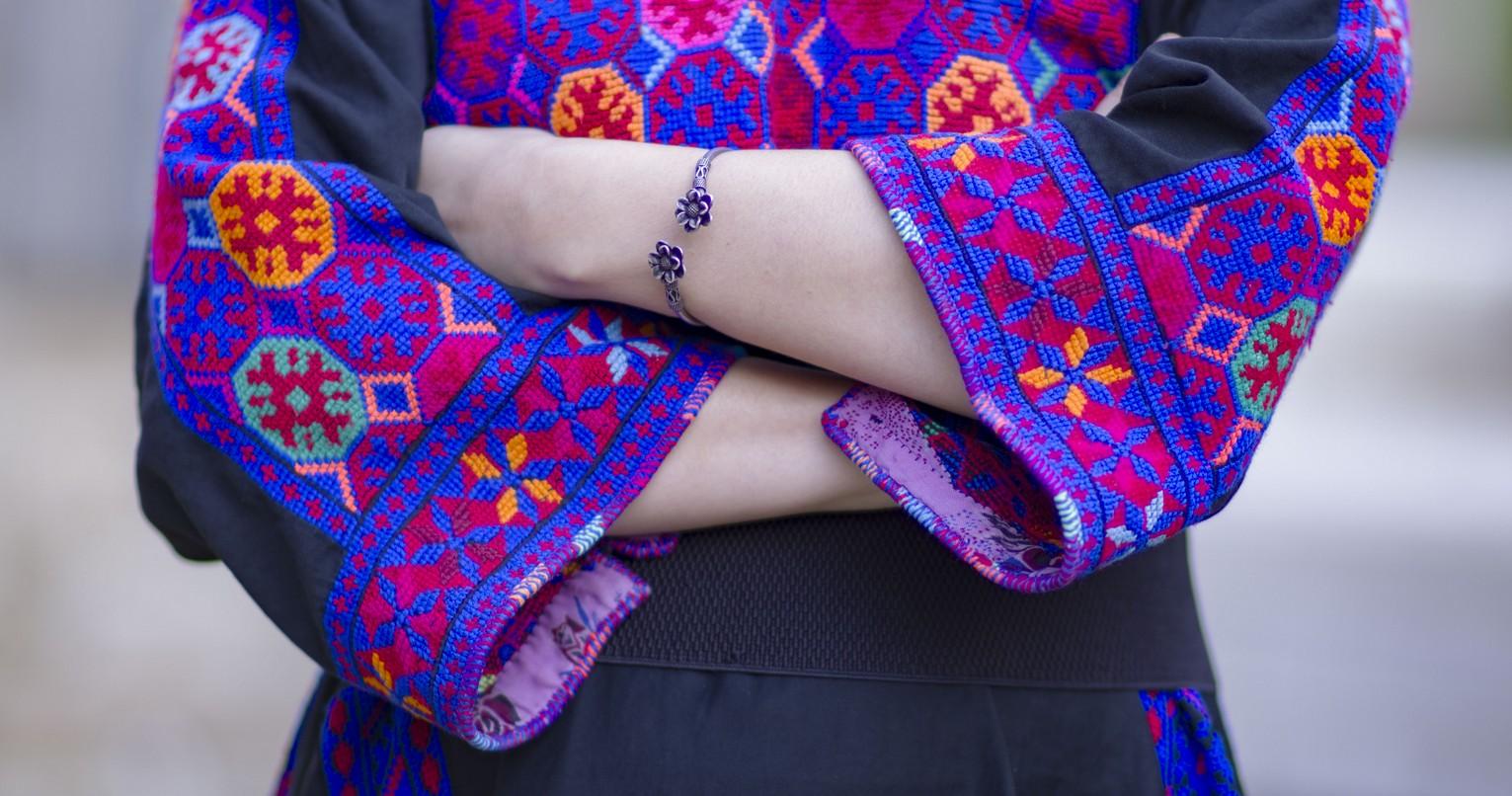
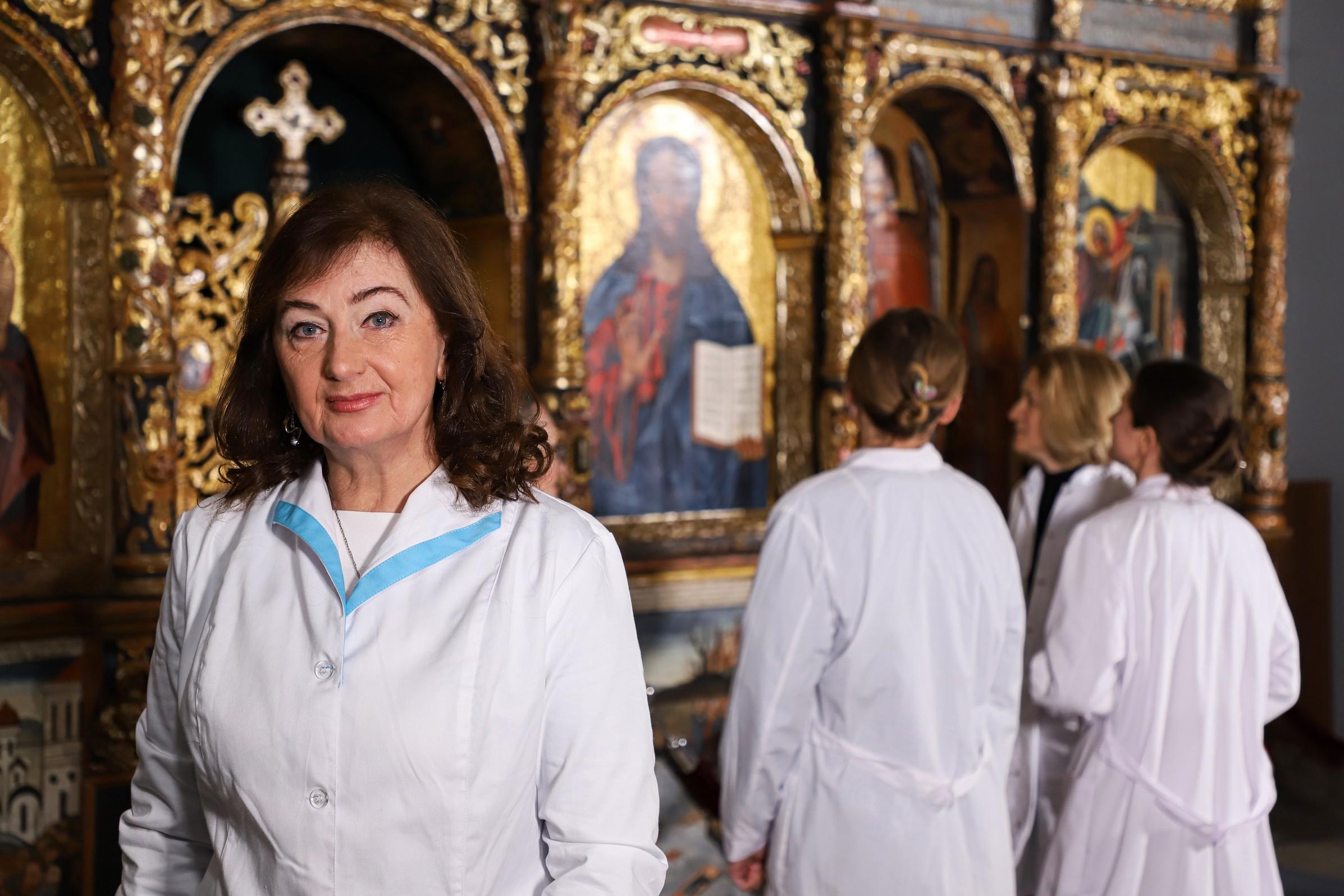
An art historian with a doctoral degree from the National Academy of Fine Arts and Architecture in Kyiv, Svitlana Stryelnikova has more than 40 years of experience as a heritage professional. Under her long-standing leadership, the National Research and Restoration Centre of Ukraine (NRRCU) has played a pivotal role in protecting, safeguarding, and restoring Ukraine’s cultural treasures. Her deep experience has been particularly essential since 2022, as the cultural heritage of Ukraine has become endangered by the ongoing war. Together with her team of experts, Svitlana Stryelnikova has traversed the country, often operating perilously close to active hostilities and shelling to protect and restore artifacts. Her unwavering dedication reflects the profound love she and her team hold for their nation’s heritage.
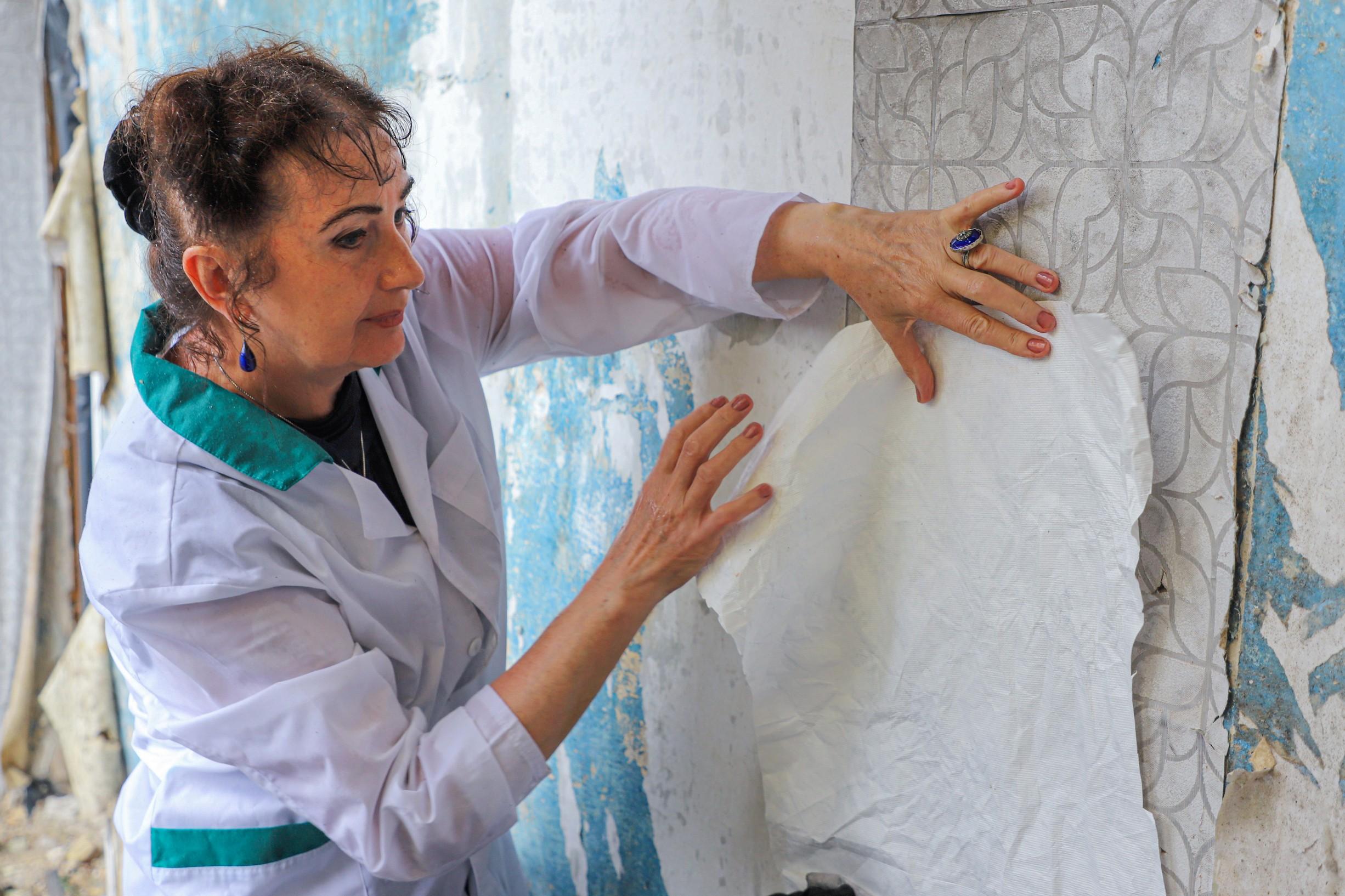
Through the ALIPH Action Plan to Protect Cultural Heritage in Ukraine, supported in part by the European Union, the Getty as well as ALIPH’s member states and private donors, the NRRC acquired much-needed equipment, including heritage ambulances—vehicles equipped with essential conservation and restoration tools—that transports conservators around the country to evaluate and stabilize cultural objects on site. These ambulances enable a swift response to cultural heritage protection under the most challenging conditions.
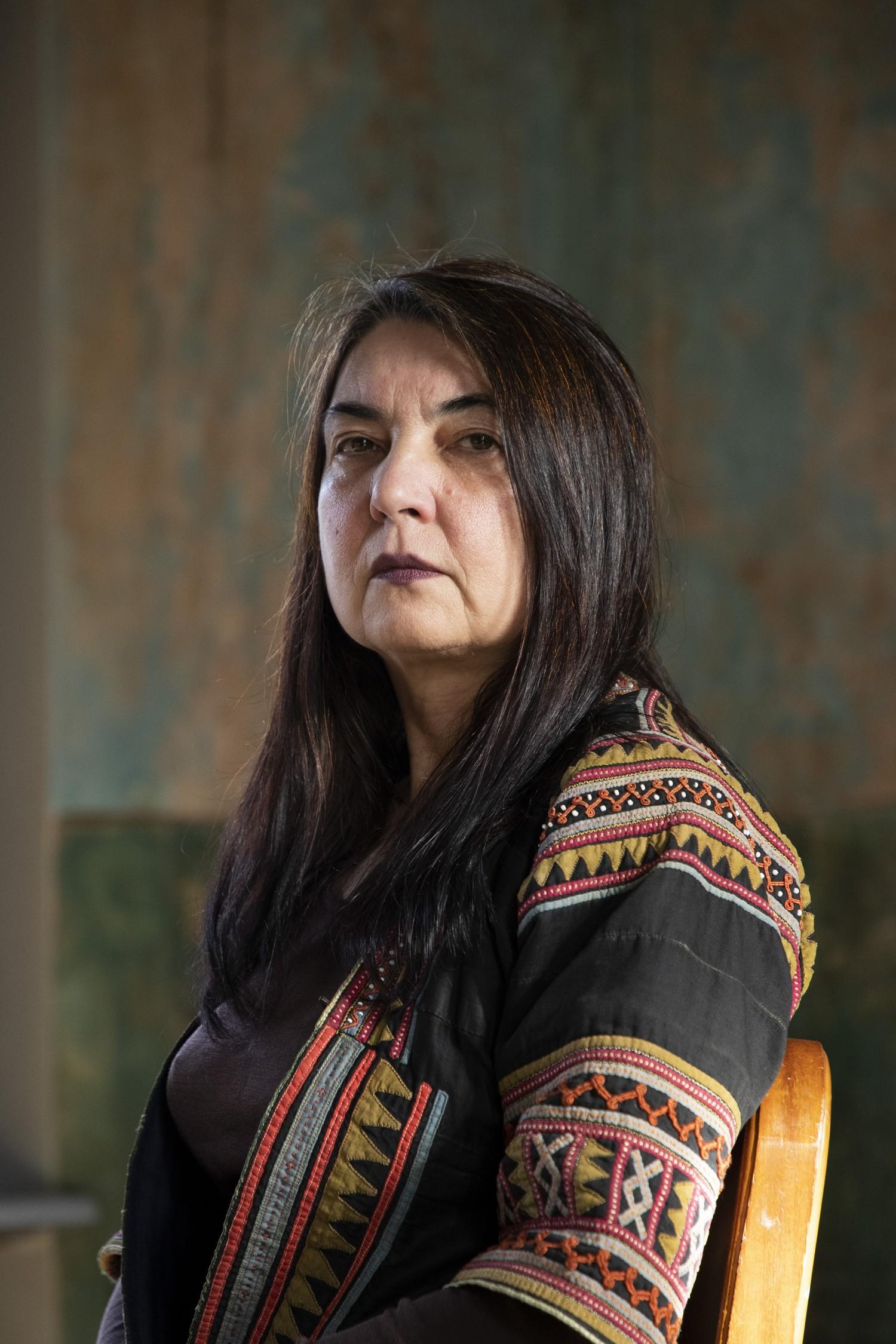
President,TheNationalTrustofGeorgia
Mariné Mizandari holds a doctorate in art history and is an author, translator, and heritage professional with a wide range of experience in Europe, the South Caucasus, the Middle East, and North Africa. She is currently President of the National Trust of Georgia,basedinTbilisi.
Dr. Mariné Mizandari, Tbilisi, Georgia, December 2024 ©
With her team of heritage professionals, she has restored monuments marked by time and conflict. Her team has often been challenged by fragile contexts throughout Georgia, particularly border regions or mountainous areas that are not easily accessible. As part of their recent project supported by ALIPH and carried out in partnership with the International National Trusts Organization (INTO UK), REMPART (France), and the Association Ducal Tower in Sidlecin (Poland), Mariné Mizandari and her team rehabilitated the Tsiskarauli Tower, destroyed by a missile and located in an isolated Georgian valley. This project is particularly emblematic in that it called on local and international volunteers to carry out the restoration work, earning it the Europa Nostra European Heritage Award 2024.
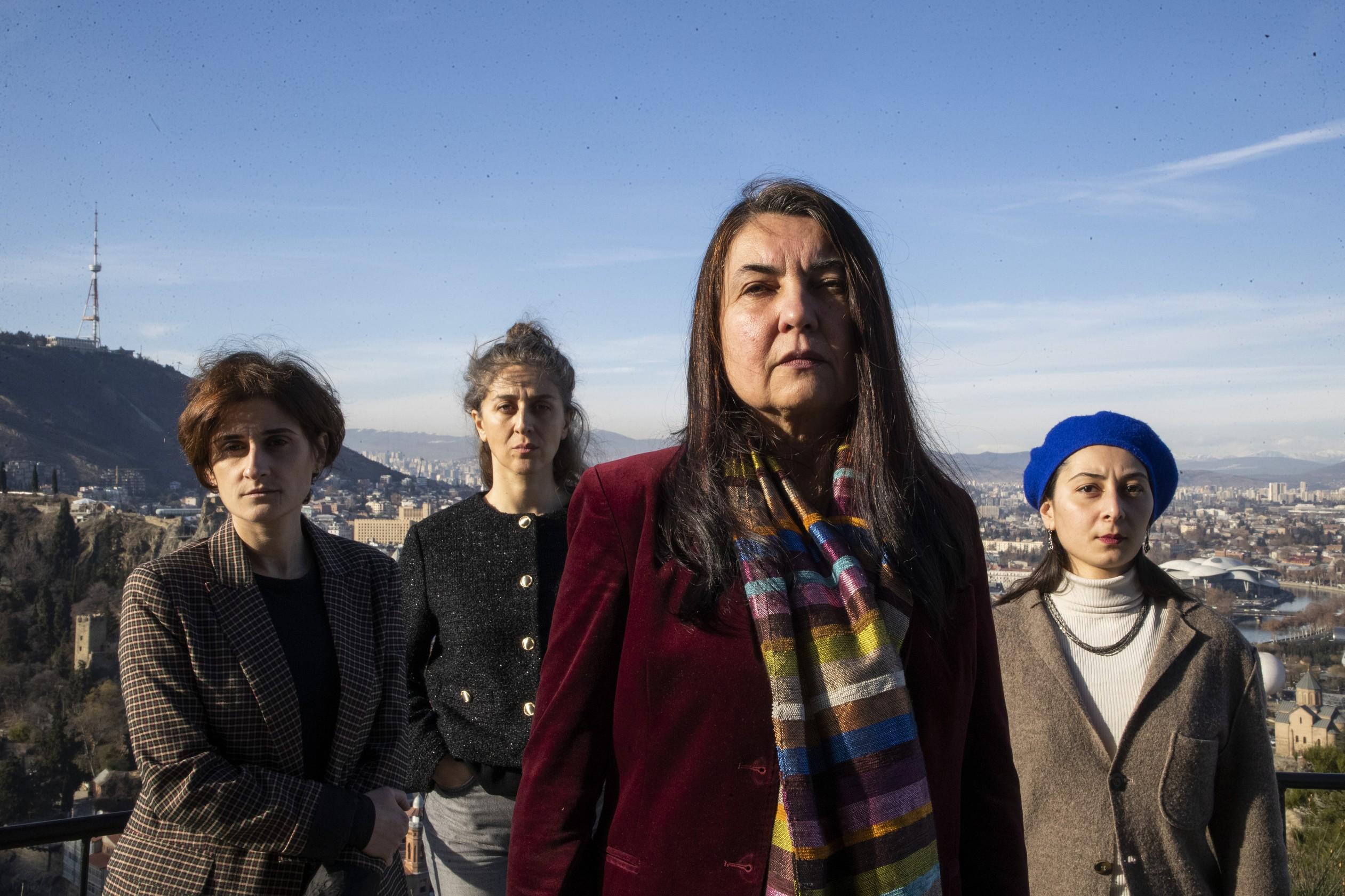
The International alliance for the protection of heritage (ALIPH) is the main global fund exclusively dedicated to the protection and rehabilitation of cultural heritage impacted by war, climate change, and natural disasters. It works in conflict, post-conflict, and crisis areas. Created in 2017 in response to the massive destruction of cultural heritage over the previous two decades, it is a public-private partnership assembling nine countries (France, the United Arab Emirates, Saudi Arabia, Kuwait, China, Moroco, Luxembourg, Cyprus, and Uzbekistan) and three private donors (Dr. Thomas S. Kaplan, Getty Trust, and Fondation Gandur pour l’Art).
Based in Geneva, this Swiss Foundation has supported over 550 projects in 54 countries. ALIPH finances concrete initiatives carried out on the ground, hand in hand with local partners, authorities, and communities. Its mission places cultural heritage protection as a central contributor to peace and sustainable development.
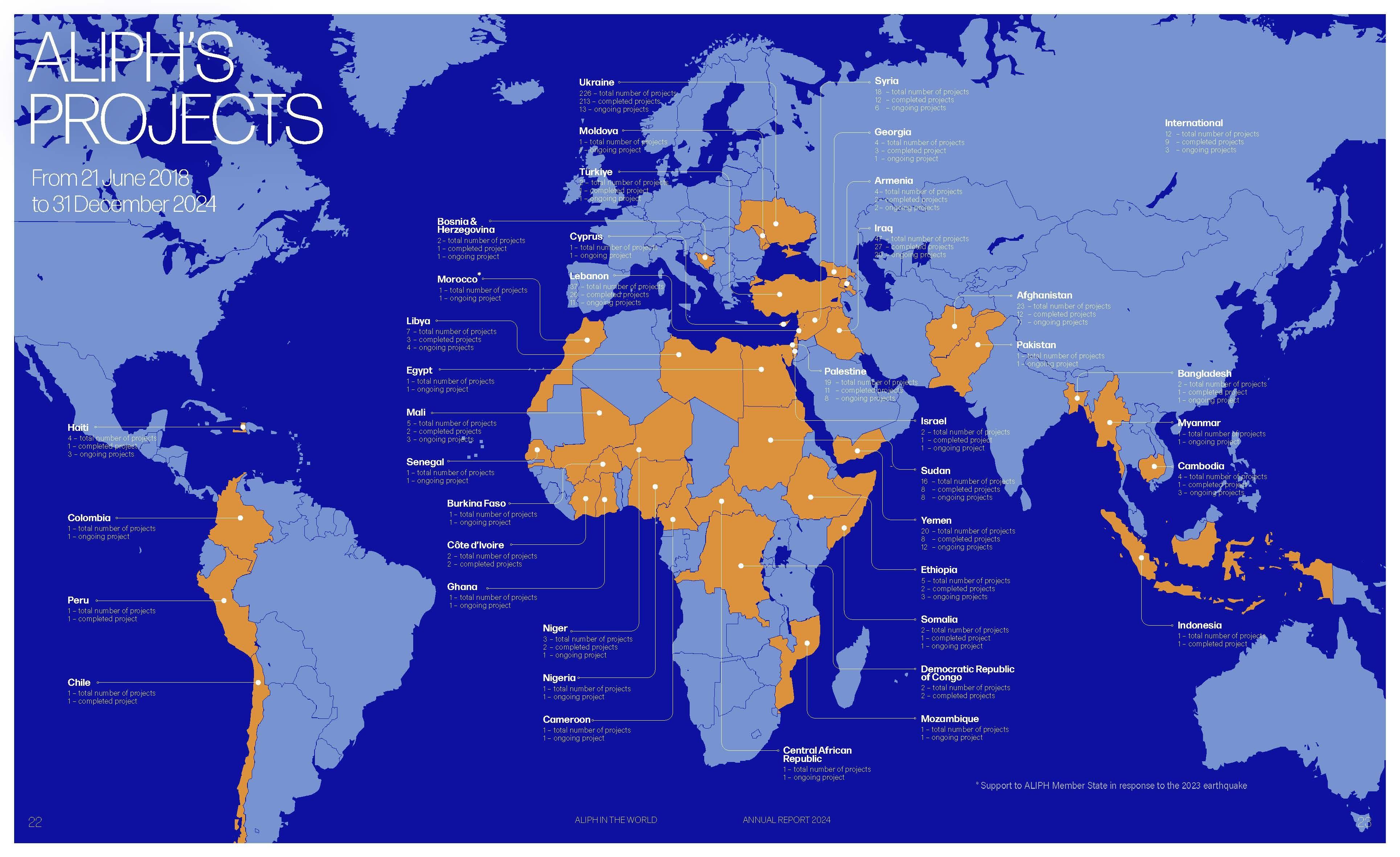
Since 2017, ALIPH has been able to carry out its work thanks to the support of: Member States
France | United Arab Emirates | Saudi Arabia | Kuwait | Luxembourg | China | Morocco | Cyprus | Uzbekistan
Private Donor Members
Dr. Thomas S. Kaplan | J. Paul Getty Trust | Fondation Gandur pour l’Art
Host Country Switzerland
Non-Member Donors
European Union | Oman | Romania | Principality of Monaco | Ministry of Culture of the United Arab Emirates
U.S. Department of State | Total Energies Foundation | Andrew W. Mellon Foundation | Lionel Sauvage Family Foundation | Leon Levy Foundation | Bloomberg Philanthropies
